Avot Chapter
Dear OU Parenting,


Avot Chapter
Dear OU Parenting,


Following the recent string of terrorist attacks, my son, 11, has become veryanxious. I, ofcourse, have also been affected by all the loss and trauma. I’m not sure how much or how little to share with him in general and specifically regarding my own emotional experience. For example, should I try not to cry and be sad around him? T.R.

IDF Converts and Bishul Akum by Family - Part 2 Page 40 Rabbi Ezra Friedman
Michal Silverstein, MS
Dear T.R.
Michal Silverstein
Page 56
Thank you for asking this very relevant and timely question.
Adults as well as children are overwhelmed with emotions when they hear about a terrorist attack. When they become more frequent, the feeling of uncertainty and loss of control can create much anxiety. There are certain guidelines to keep in mind
For Sale:
The prohibition According to Biblical law, food that is completely kosher and cooked by a nonJew is permitted. However, our Sages decreed that such food, even when cooked in kosher utensils, is prohibited for con sumption. This prohibition is known as bishul akum will discuss the parameters of this rab binic prohibition, including the reasons behind the decree, when it applies, and the practical halacha for modern indus trial kashrut.

25 Ben Maimon, 4 rooms, 113m, 2 bathrooms, porch, 1st floor, elevator, 6.2 million NIS
Smadar 050-3114040 // 02-642-4329 smadi_bida@walla.co.il
70 TORAHTIDBITS 1514 / EMOR
every society. That is the basis behind the decree of bishul akum. Our Sages were very concerned about close relationships with non-Jews since intermarriage is a very severe transgression. The prohibition effectively limits Jews and gentiles dining with each other, although there is no specific prohibition against dining with a non-Jew per se. (See Rashi on Avodah Zara 31:b.)
Forbidding the non-Jew’s cooking would be enough to create an emotional distance such that families wouldn’t marry into each other.
Rabbeinu Tam (Tosfot Avodah Zara 38:a) and Rambam (Ma’achalot Asurot 17:9)
52 TORAH TIDBITS 1516 / BAMIDBAR
when responding circumstances.
BY RABBI EZRA FRIEDMAN Director, The Gustave for Kashrut Educationmaintain that issue of closeness lead to intermarriage; most early authorities. others attribute prohibition of non-Jews might ents into the kosher we will discuss bishul akum are sons or just one. numerous sources marriage is the prohibition (See The decree reason
Firstly, space to speak, them selves them. Some reaction and frustration. don’t agree them the Next, when them accurate the questions necessary politics or tions should manner. priate your Having more is more appropriate old. It’s important emotional If your child becomes ing changes he may need rent state changes. Regarding important children. will allow being said,
Since the transgression riage was the Sages’ decree, discourage the emotional connections could lead to that generation early authorities prohibition of even in situations is not technically Rashba, in his the case of food that Catholic they have children marry, is it permitted by a priest even bishul akum seemingly
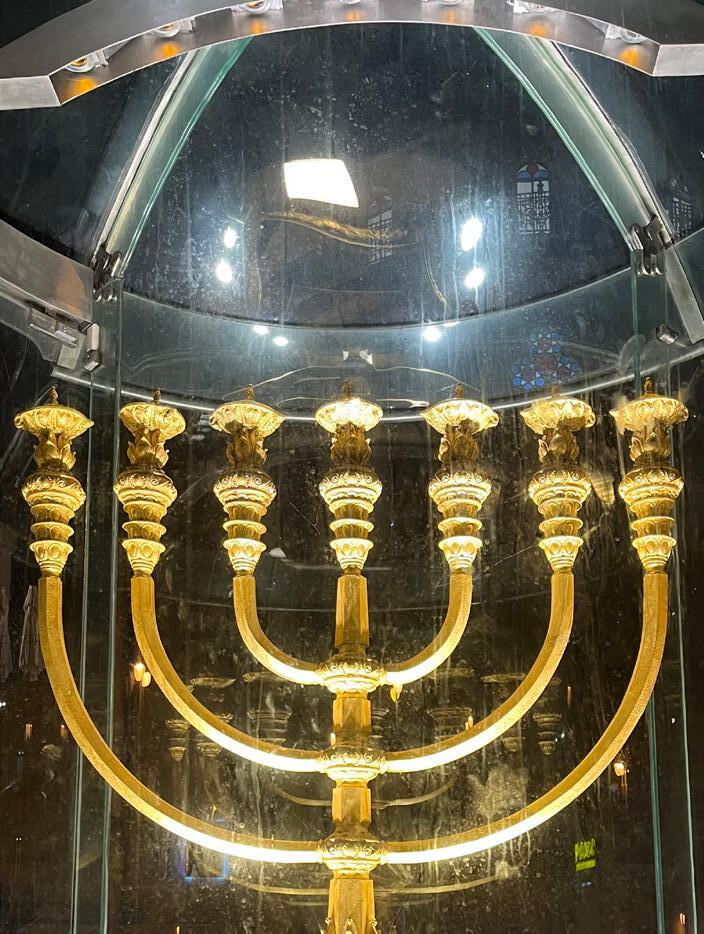
Rabbi
Rabbi
Rabbi Moshe Taragin
Rebbetzin Dr. Adina Shmidman
Straddling Heaven & Earth
Rabbi Aaron Goldscheider
to Return after Kaddish
Rabbi Daniel Mann
Parenting Column
Silverstein

Photographed by Yaakov Adler. I am a ben aliyah that lives in a Ramat Beit Shemesh. This photo is of the menorah replica that everyone passes in the Old City of Jerusalem. It is a good reminder of all the miracles and the Jews being the light to the nations.
Last Opportunity to Say Kiddush Levana until: 14 Sivan/ Thurs. night June 20
R av, Beit Knesset Beit Yisrael, Yemin Moshe
“And G-d said to Moshe, Gather unto Me seventy men of the elders of Israel.” (11:16)
Rashi explains that this was an answer to Moshe’s complaint that “I am not able alone”. (11:14)
Rabbi Samson Raphael Hirsch (Frankfurt, Germany 1808-1888) asks, how can the command to gather these seventy elders serve to answer the murmurings of the Israelites?
He answers that the complaints of the people lacking meat did not stem from any physical hunger or starvation, rather, it implied clearly that they were lacking spirituality and faith. By assembling these seventy men from the nation’s elders, this would allow some of their piousness and devoutness from within them to radiate onto the rest of the nation. Rabbi Hirsch felt that if the Israelites would be provided with spiritual sustenance, they may then appreciate that which has already been provided by G-d and be satiated, thereby no longer needing an outcry for meat. - Shabbat Shalom We are sponsoring Kiddush this coming Shabbat morning after Tefillah, welcoming our new granddaughter, Techiya Shulamit. Mazal Tov to parents Uriel and Atara Suna. All are invited.
Yerushalayim/Maale Adumim
Aza Area (Netivot, Sderot et al)
Raanana/Tel Mond/Herzliya/K.Saba
Ranges 11 days Wed - Shabbat
Oct x - x / x - x Cheshvan
Ranges 11 days Wednesday - Shabbat June 19 - 29 / 13 - 23 Sivan
Earliest Tallit and Tefillin x:xx - x:xx
Earliest Tallit and Tefillin 4:34 - 4:37
Sunrise x:xx -
Sunrise 5:34 - 5:36
Zman Kriat Shema
Sof Zman Kriat Shema 9:07 - 9:09
Avraham
Magen Avraham 8:23 - 8:25
Sof Zman Tefila
(According to the Gra and Baal HaTanya)
Sof Zman Tefila 10:18 - 10:20 (According to the Gra and Baal HaTanya)
(Halachic Noon) x:xx - x:xx
Chatzot (Halachic Noon) 12:40 - 12:42
Mincha Gedola (Earliest Mincha) x:xx - x:xx
Plag Mincha x:xx -
Mincha Gedola (Earliest Mincha) 1:16 - 1:18 Plag Mincha 6:18 - 6:19
Sunset (Including Elevation) 7:52 - 7:53
Seymour J. Abrams • Orthodox Union Jerusalem World Center • Avrom Silver Jerusalem College for Adults • Wolinetz Family Shul • Makom BaLev • Birthright • Yachad • NCSY in Israel • JLIC in Israel • Camp Dror • Pearl & Harold M. Jacobs ZULA Outreach Center • The Jack Gindi Oraita Program • OU Israel Kashrut
STUART HERSHKOWITZ, PRESIDENT OU ISRAEL Zvi Sand / Yitzchak Fund: Former Presidents, OU Israel | Rabbi Emanuel Quint z”l, Senior Vice President | Prof. Meni Koslowsky, Vice President
VAAD MEMBERS:
Michael Elman | Yonatan Frankel | Yitzchak Fund | Daniella Hellerstein | Stuart Hershkowitz | Jeremy Lustman | Meir Raskas | Atara Reichel | Zvi Sand | Norman Schmutter | Mark Schneider | Esther Williams RABBI AVI BERMAN, EXECUTIVE DIRECTOR, OU ISRAEL
All Times According to MyZmanim (20 mins before Sunset in most Cities; 40 mins in Yerushalyim and Petach Tikva; 30 mins in Tzfat and Haifa)
All Times According to MyZmanim (20 mins before Sunset in most Cities; 40 mins in Yerushalyim and Petach Tikva; 30 mins in Tzfat and Haifa)
Daf Yomi: Kidushin 69
Daf Yomi: Bava Metzia 115
Sunset (Including Elevation) x:xx - x:xx OU Kashrut NCSY Jewish Action JLIC NJCD / Yachad / Our Way OU West Coast OU Press Synagogue/Community Services OU Advocacy OU Israel
MITCHEL R. AEDER, PRESIDENT OF THE ORTHODOX UNION Yehuda Neuberger, Chairman of the Board, Orthodox Union | Dr. Josh Penn, OU Kashrus Commission
RABBI MOSHE HAUER, EXECUTIVE VICE PRESIDENT | RABBI JOSHUA M. JOSEPH, ED.D. EXECUTIVE VICE PRESIDENT & CHIEF OPERATING OFFICER Rabbi Dr. Tzvi Hersh Weinreb, Exec. V.P. Emeritus OU KOSHER: Rabbi Menachem Genack, CEO/Rabbinic Administrator OU Kosher | Rabbi Moshe Elefant, COO/Executive Rabbinic Coordinator ISRAEL: Rabbi Yissachar Dov Krakowski, Rabbinic Administrator | Rabbi Ezra Friedman, The Gustave and Carol Jacobs Center for Kashrut Education/ Deputy Rabbinic Administrator Headquarters: 40 Rector St. 4th floor, New York, NY 10006 212-563-4000 website: www.ou.org
Editor Emeritus: Phil Chernofsky
Editor: Rabbi Aaron Goldscheider | aarong@ouisrael.org
Advertising: Ita Rochel | 02-5609125 or ttads@ouisrael.org
Website: www.torahtidbits.com
Not getting enough TTs? Too many? None at all? Contact our DISTRIBUTION 050-577-2111 • ttdist@ouisrael.org
David Katz, CFO, OU Israel | Natan Kandler, COO, OU Israel | Chaim Pelzner, Director of Programs, OU Israel | Rabbi Sam Shor, Director of Programs, OU Israel Center | Rabbi Sholom Gold zt"l, Dean, Avrom Silver Jerusalem College for Adults 22 Keren HaYesod <> POB 1441 <> Jerusalem 9101032 phone: (02) 560 9100 | fax: (02) 561-7432 email: office@ouisrael.org website: www.ouisrael.org
Founders and initial benefactors of the OU Israel Center: George and Ilse Falk a"h
Torah Tidbits and many of the projects of OU Israel are assisted by grants from THE JERUSALEM MUNICIPALITY
OU Israel, Torah Tidbits does not endorse the political or halachic positions of its editor, columnists or advertisers, nor guarantee the quality of advertised services or products. Nor do we endorse the kashrut of hotels, restaurants, caterers or food products that are advertised in TT (except, of course, those under OU-Israel hashgacha). Any "promises" made in ads are the sole responsibility of the advertisers and not that of OU Israel, the OU Israel Center , Torah Tidbits.

Writing this message on Motzei Shabbat so many thoughts of pain, grief and sorrow fill my head. This past Shabbat was extremely painful for the Jewish people. Eleven brave soldiers died today. Surrounded here by a number of my sons, we are all receiving nonstop notifications on our phones. Siblings of friends and people they know from their Yeshiva days are among the names read out in this terrible news of who was killed today in Gaza. The notification just came in that one soldier, wounded previously, succumbed to his injuries today. We’re waiting on the levaya and shiva information. So much pain.
I’m sure the scene in our home is no different than many other homes in Israel right now. Soon, our brothers and sisters all over the world will receive this news and have similar reactions. The reason for this collective grief is no doubt because we treat every single soldier like our own family members. Approximately 300 soldiers have died in Gaza and up north since the beginning of this war. The lives of hundreds of families, thousands if we count October 7th itself, will never be the same. The comfort many of them take
The OU Israel Family wishes Mazal Tov to Dr. Claire & Stuie Hershkowitz (President, OU Israel) on the birth of their grandson born to Isca & Amitai Hershkowitz and to Grandparents Aharon & Phoebe Atar
RABBI AVI BERMAN Executive Director, OU Israelis in seeing that Klal Yisrael embraces them; when the levaya and the shiva house are packed; when love comes pouring in from all over the world in emotional support. They can see that we feel that every fallen soldier is kodesh kadashim (holy of holies). They see the unity of our people and take consolation in it.
There are two stories that come to mind that really demonstrate this. They both show how special we are - how we’re all really connected with a single heart.
There is a wonderful woman named Hadassah Jacob. For many years, she has run OU Israel’s Dorot Choir, the OU’s first ever intergenerational women’s choir. The feedback from this choir illustrates that she is doing an amazing job. The choir put on a concert just a few months ago in January to raise funds for OU Israel’s vigorous programs and initiatives helping those severely impacted by the war.
I was truly moved by this decision, and they were very successful, selling out every seat. Hadassah and the entire choir saw the need to show unity of Klal Yisrael, and they did.
The second story is related to what I wrote about in these pages a few weeks ago. You may recall my description of a resilient woman named Inbar, up in Rosh Pinah, who runs a ceramics studio and where my family visits every year around Pesach time. After a conversation with her, OU Israel decided to run a pre-Shavuot fair where vendors from the North could sell their products, in an effort to help them in a time when their businesses are suffering.
Rabbi Sam Shor and the rest of the OU Israel Center team put together such an incredible event at the OU Israel Center. OU Israel embraced these northerners, opened our home to be their home for the day, and invited our families and friends to come and take part in this important opportunity to show them how much we care about them and love them.
The line I heard most often from the vendors was, “Avi, you know that we aren’t looking for handouts. You know that we don’t want gifts, we don’t want to be pitied. We want to get parnasah with dignity, and OU Israel has made that happen.” Many of them told me that when they heard of this idea of an OU Israel Center fair they were initially a little skeptical. They wondered if people really cared. They truly doubted that people would come, but when they saw the turnout, they realized how united the OU Israel and Torah Tidbits family are. The place was packed, and the crowd was immense. Everyone was there to show their support, emotionally and financially, for their fellow Jews. We opened the doors at 12:00 pm and closed them at 9:00 pm, and it was full of people the entire time. While my schedule had me out of the office until 6:00 pm, I had been hearing from my staff how successful the event was going. When I arrived, one of the artists from up north was closing her stand. I asked her how it went and why she was leaving early. She said there’s no reason for her to stay; she already sold everything she brought! Another woman came over to me and told me that she had set aside 5,000 shekels to spend supporting her fellow Jews, and she had already spent it all.
Inbar’s husband Roni came over to me. He


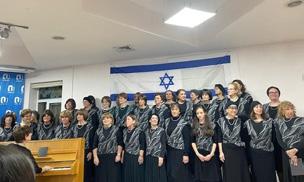
said to me, “Avi, I thought Inbar was being overly optimistic. She told me to pack up the car with all of our ceramics and bring more and more wrapping paper and bubble wrap. We have a son in the army and he needed to
Mazal Tov to Camp Dror Director Cindy & Israel Wiesel and family on the birth of a granddaughter, Stav Be’eri daughter of Dafna & Eli (Usprich) Rose
get back to base, but she said we need to send him by train instead because there won’t be room in the car for him. I thought it was all a little extreme. I told her we’ve been to these kinds of fairs before, and we never sell much, but she told me that she had a good feeling about this. And you know what? She was right. We’ve almost sold out!” He continued, “We’re secular people from up North. We had no idea about this special olim community you have here in Israel. I met people who just want to show their support and give us the dignity and respect to let us sell our products to them.”
These two stories, of the Dorot Intergenerational Women’s Choir and the pre-Shavuot fair have a common denominator. While they are just examples of the many initiatives OU Israel has run throughout this war, they symbolize in my mind the sense of passion, excitement, mission and drive that brings Klal Yisrael together.
I had a conversation with a man at that fair who was from the Golan. He was a tour guide there, and as you can imagine, he has not had much business lately. He fought in the Yom Kippur War as a paratrooper, but he saw the bravery from today’s soldiers far surpasses what he saw in his day. This, he said, was something he took comfort in, even with fires raging in the North and rocket attacks, that we have such courageous troops, willing to do what’s needed for their country. He told me that the fair also represented to him the same sort of comfort. He never imagined so many people would come out to show their support. He was doubly heartened by this show of love and care.
It is a highlight of my career to see how the OU community responds to a call to action like this, how they expressed their values not
just with words but with their feet and with their wallets. This showed me that the Torah Tidbits community not only reads the Torah and messages we share with you each week, but we internalize it as well. Our community doesn’t hesitate, doesn’t think twice. I’m sure people had many other things to do on an erev chag, but you came out in droves to show love and support. That is what Am Yisrael is all about. We are one family, and we are there for each other.
It is unfortunate we are in this situation. That we have to fight for our country, struggle to make a living, and defend our people in our Land. We have fought our enemies, physical and spiritual, for thousands of years, and we can take comfort in the fact that we are still willing to fight and stand up for what’s right. These are the values of the Torah that we received last week on Shavuot. That passion, that desire, that excitement, shows me that there is no doubt that we will win this war, defeat our enemies, and all the while stay an Ish echad be’lev echad. Am Yisrael Chai!
Wishing you all an uplifting and inspiring Shabbat,
Rabbi Avi Berman
Executive Director, OU Israel aberman@ouisrael.org








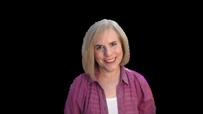




Life can be boring-even mind-numbing-if we keep doing the same thing day after day. While doing things without thinking may be helpful for multi-tasking, it is not good for the spirit.
The challenge and the opportunity of a boring routine is the subject of a classic Chassidic thought shared by the Sfas Emes. Our parsha begins with Moshe instructing Aaron about
the daily ritual of lighting the Menorah, following which the Torah says that Aaron did so. Rashi cites the Sifrei that notes how the verse is sharing the praiseworthiness of Aaron, l’hagid shiv’cho shel Aharon she’lo shina, that he did not deviate from Moshe’s instruction.
This is surprising. While obedience is a valuable trait, it would hardly seem to be so exceptionally praiseworthy. Aaron indeed followed the instructions sent specifically to him by G-d via Moshe Rabbeinu. Wouldn’t you do the same?
Sfas Emes therefore suggests a more creative reading of the words “shelo shina,” which typically translates as “he did not
Rachel & Aviv
Eytan & Rachel
Amichai & Shimrit
Ariel & Hadar
With gratitude to Hashem we take note of the 40th anniversary since our Aliyah to Eretz Yisrael
Goldie & Izzy Marans and family
deviate,” but can also mean “he did not repeat.” What was praiseworthy in Aaron was that his daily Mitzvah never became a mindless repetitive action. He never repeated it; it was always an original and novel experience. As the Talmud (Berachos 29b) says when defining the negative phenomenon of routine in prayer, oseh t’filaso keva, the challenge lies in the inability to introduce novelty of perspective and experience, kol she’eino yachol l’chadesh bo davar. And as famously noted by Ramban in the name of the Midrash at the end of last week’s Parsha (7:12), what appears as repetition or copying is not that at all when the act is infused with novel and personal perspective and meaning. It is striking that this solution to the challenge of repetition is embedded in the term itself. A fascinating feature of the Hebrew language is that the same term is used for precisely opposite meanings, antonyms. As “repetition” is the opposite of “change,” the Hebrew term shina is used for both repetition and change! We avoid repetition by creativity of perspective. The very opposite of mind-numbing!
One of my teachers, Rav Moshe Shapira zt”l, used to note that while as people of faith we speak of the entire world being renewed and recreated constantly, “hamechadsh b’tuvo b’chol yom tamid maasei bereishis,” fire is the one element in creation where even the physics professor will acknowledge that this moment’s fire is entirely different than the next. Perhaps that is why the lesson of renewal, this battle with repetition, is best demonstrated in the lighting of the fire of the Menorah. And it is only our own fiery passion about our lives, our families, our faith, and our work, that will spare us from becoming hardened by repetition and routine.

Just enjoying a and sipping a drink on instead of sweltering in the summer heat... imagine cool sea breeze your balcony opposite the beach





Aexceptional service with a highly recommended, no-obligation
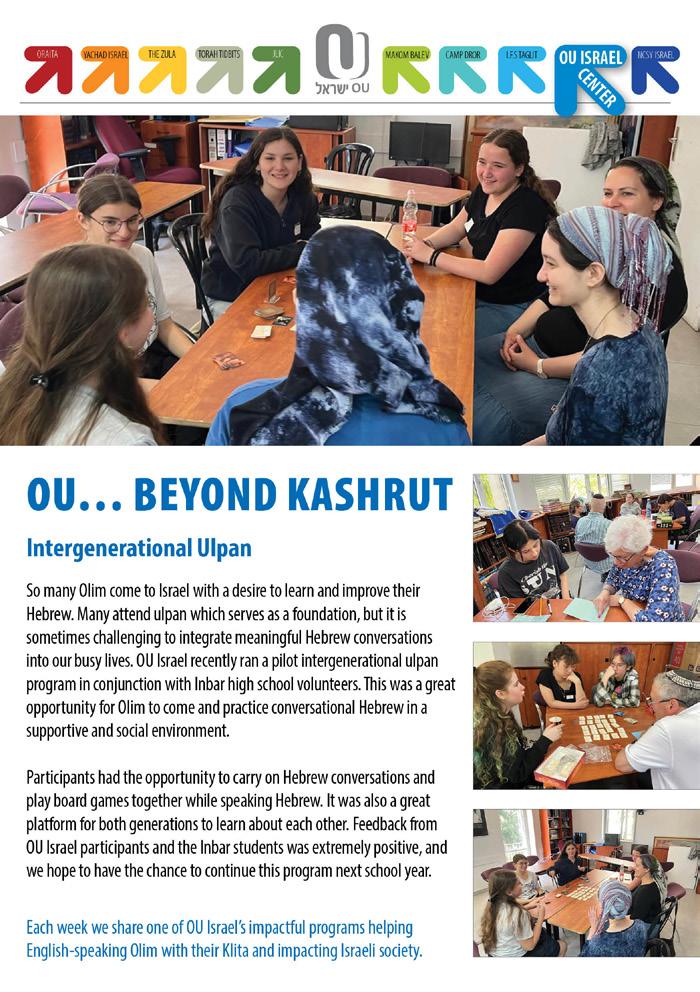


JERUSALEM SALES
NEW PROJECTS - Excellent Opportunities
Desirable Neighborhoods - Call For Information
SHAAREI CHESSED / RECHAVIA
*Duplex! 5 bdrms, 25 sqm kitchen, succah, shabbat elevator, 2 parking, storage.
*New 228 sqm duplex penthouse, 30 sqm succah, shabbat elevator, parking, view
TALBIEH - On Private Land

www.israelcharmbracelets.com
* Exceptional boutique building with 3 apartments on 900 sqm lot
*New 250 sqm + 200 sqm garden
NACHLAOT / CITY CENTER
*2 rms, priv. entr. storage room, NIS 2,190,000
*2 One bedroom apartments, renovated, purchase together or separate, shabbos elevator, view!
OLD KATAMON
160 sqm 4 bdrms, garden, storage, parking
HAR NOF
Centrally Located– 10 room duplex with 400 sqm garden (room for a pool), excellent condition
Sun/Mon/Wed (10:15am-2.45 pm)
Inquiries: Menachem Persoff 050-570-1067 | menpmp@gmail.com
Yosef Ezriel ben Chaya Michal
Chana bat Bruriah
Benzion Simcha Mendel Ben Chana Rachel
Feyge Sara bas Chaya Peshe
Nechama Charna bat Feigel
Leah Naomi bat Tova
Pesach ben Sarah Frieda
Rina Feigle bat Rivka
Yochanan Ben Sarah

Parshat Beha’alotcha is one of the richest of the parshiot of the Torah. In it the preparation to march to the Land is completed; off we go, the march begins. It is the pivot from the sublime to the practical, from the ideal to the real, from theory to practice. It has more complaints than any other parsha – and all packed into the last 2 aliyas. There is complaining, disappointment, pettiness, disputes, frustrations. It is communal life in Technicolor.
And that is its profundity. You see, if we were to stop the Torah here, we would imagine Jewish life to be a fairytale: G-d promised the Land, sweeps us out of slavery, gives us the Torah, wants to dwell in our midst, creates a place of rendezvous of man and G-d, gives us days to meet with Him, and instructs us in choreographed detail how to march in life with Him. Beautiful.
Then we would look at our lives – feeling parched, distant, chaotic – where is He, where is the order, the choreography, the Mikdash? We could feel the Torah is a fairytale, of living with G-d in a way we are unfamiliar. But then there is Beha’alotcha and the rest of Bamidbar. As if G-d says: I have shown you the ideal. And I know full well your complexities. I expect some of you to be dissatisfied, bored, jealous, resentful. Skeptical, cautious, weak. Man is complicated. I, G-d says, know that perfectly well: I made you that way. Your job as a people is to figure out a way to live
reaching for the ideal while living all the complexity that man is: all the differences, the divisions, the struggles, the talents, the weaknesses and the aspirations. Beha’alotcha assures us that the ideal is to aspire to, while the real is to manage.
1ST ALIYA (BAMIDBAR 8:1-14)
Aharon is instructed to light the Menorah. The instructions concerning how the Leviim are to be purified and inaugurated through immersion and offerings are given. In so doing the Leviim are to be separated to be Mine.
These are the last verses of communal, national preparation to march to the Land. The Leviim are to serve the Kohanim.
2ND ALIYA (8:15-26)
The Leviim are to replace the first-born who are Mine after the plague of the first-born. The Leviim are to assist the Kohanim in maintaining the sanctity of the Mikdash. They are inaugurated and purified. They are to serve from ages 25-50, but not to do the offerings.
Just as for the Kohanim and for the leaders, the ceremony of inauguration impresses on the Leviim that their special status is not mere privilege; it is service of the people, and service of G-d. A sense of entitlement or of privilege is the poison of communal leadership; a sense of service, its elixir.
3RD ALIYA (9:1-14)
Moshe instructs the people to do the Pesach in the first month of the second year. They do so, though some
and our next step will be to plant a fruit tree. I never thought of myself as being the agricultural type, but the feeling of settling and planting a portion of Eretz Yisrael, has been truly euphoric. Iy”H, when we plant our tree, and eat the fruits that will grow one day, I think we will be able to truly appreciate that unique Kedusha found in the fruit of Eretz Yisrael!
are unable due to their Tuma impurity. They query Moshe as to why they should be denied bringing the Pesach due to contact with the dead. Moshe defers to what G-d will tell him. He is instructed: all who are unable to do the Pesach in its proper time, due to Tuma or being distant from the Mikdash, may do it in the second month.
The chronology in the book of Bamidbar isn’t smooth. We are in the second year since the Exodus. The book began on the 1st day of month 2. This story here of Pesach is the 14th of month 1. The leader’s offerings in last week’s parsha were the first days of month 1.
To conclude, when you buy your Tu B'shvat fruit this year, don’t search for those dried apricots and banana chips imported from Turkey. Rather, head over to the fresh produce and buy yourself some nice juicy Kedusha-filled Jaffa oranges and thank Hashem for bringing you to this land in order to be able to הבוטמ עבשלו הירפמ לוכאל, imbibing that Kedusha in every bite that you take!!
Moving around the events is deliberate. We want to begin the book with order and preparation of the leaders for the march to the Land. And now we want to move to a story of the Pesach where the leader, Moshe no less, is stumped.
The story of the offerings of the leaders was a wonderful display of what leadership need be; leaders are servants of G-d, not self-serving. So too the bringing of the Pesach. We are all, all of us, servants of G-d, not self-serving.
But the inquiry to Moshe from those who are impure stumps him and is dramatic foreshadowing. Even though everything has fallen into place perfectly – the camp is set, the Mishkan in the middle, the leaders altruistic, the people dedicated – but get ready. Because things unexpected are, well, to be expected. All the planning in the world cannot avoid the expected unexpected of life. Even the holiest, most self-effacing leader will not have all the answers all the time. He’ll get stumped once in a while.
And that is a powerful lesson to all leaders; infallibility is fallacy. And certainty too. Be prepared for uncertainty, like how to

accommodate the impure and their Pesach. Expect that things are going to happen that you just didn’t expect. And you won’t have all the answers.
4TH ALIYA (9:15-10:10)
The cloud descended on the Mishkan by day; by night it appeared as a fire. When it lifted, the people traveled; where it settled, the people settled. It could remain in place for a long time or just overnight, or a few days or a month. The people encamped and traveled by Divine signal. Moshe was instructed to make 2 silver trumpets. When both were sounded, the people were to gather; when just 1, the leaders would gather. A teruah would signal to travel; tekiah, to gather. In wartime, sound a teruah; on holidays and joyful occasions, sound a tekiah.
This aliya poetically describes Jewish travel:
guided by the Divine, while called by the trumpets. It is the Divine-human partnership. He calls; we call (through the trumpets). So, while guided by G-d, it is we who manage the people. And that foreshadows all that is to come; the messy business of managing people.
ALIYA (10:11-34)
On the 20th of the 2nd month the cloud lifted; the people traveled from the desert of Sinai to the desert of Paran. The camp traveled just as had been instructed; each tribe in its designated position. Moshe asked his father-in-law Chovev (Yitro) to travel with them, for his insight would be valuable. He demurred, returning to his land. They traveled for 3 days.
The march to the Land of Israel begins. And juxtaposed is a dialogue between Moshe and his father-in-law Yitro. Moshe knows his strengths and his weaknesses. Moshe knows how to communicate with G-d; it’s dealing with the people that he needs help with. And Yitro came to his aid way back in designing a court system. Yitro is the master in managing the people. Yitro is just what we need now. Moshe desperately wants Yitro’s guidance in managing the inevitable, the expected unexpected. Moshe knows the challenges of life that await him, urging Yitro to be his advisor.
6TH ALIYA (10:35-11:29)
Moshe would pray upon travel: G-d, disperse Your enemies. And upon rest: Return the myriads. The people complained, angering both G-d and Moshe, a fire burning on the camp’s edge. They called to Moshe, Moshe prayed and the fire abated. A group amongst them cried for meat, recalling the fish and produce they ate freely of in Egypt: We are parched with just this
Manna. G-d and Moshe were angry. Moshe complained: am I to hold them like a baby? Where am I to find meat to feed them all? I cannot bear them alone. G-d responded: gather 70 elders. I will give them some of your spirit and they will assist you. And I will provide meat. G-d’s spirit flowed to the 70 elders; Eldad and Medad continued to prophecy.
Here begins the rest of the book of Bamidbar: 3 challenges or failures in one aliya. The first complaint comes fast; and we aren’t even told what they are complaining about. Because life will never be satisfying to everyone. The second complaint, the complaint for meat, is the dissatisfaction of the Manna. It is boredom. We want the spice of life; pleasure, color and variety. Though their desire for the good life in Egypt is an obvious distortion of reality: is the grass of Egypt really greener, was Egypt truly so pleasant? G-d will provide the meat. And Moshe himself complains; I am not cut out for cuddling them like infants. Moshe is told that his prophecy will spill over to the 70 elders. But even that goes awry, as Eldad and Medad want to bask in the radiance of that prophecy.
Perhaps the clumping of these complaints together is to convey that dissatisfaction will come in all shapes and sizes. All of human history is the story of struggles. Human greatness inheres in how to manage the struggles; squash them with tyranny and violence, denigrate the protagonist, or manage them with ethics, trying to preserve human dignity.
7TH ALIYA (11:30-12:16)
A wind brought quail, covering the earth. The place was called Kivrot Hataava. Miriam and Aharon spoke ill of Moshe’s wife; Moshe was the humblest
of all people. G-d spoke to Moshe, Aharon and Miriam, calling to Aharon and Miriam. I speak to you in dreams: not so to Moshe. He I speak to face to face. Miriam became leprous. Moshe prayed for her healing.
The complaints continue, this time from an unexpected source; Aharon and Miriam. This challenge is brief but powerful. The challenges, conflicts, disagreements that arise in life are not to be seen as pettiness and weakness alone. Even the greatest of the great of our people can have disagreements with our leaders. That is a crucial perspective on all the challenges to come; human beings will never be free of disagreement or challenge. It is not just lusting for meat. It is even the holiest of the holy who legitimately, but here incorrectly, question our most holy of leaders.
36th of the 54 sedras; 3rd of 10 in Bamidbar.
Written on 240 lines, ranks 10.
16 Parshiyot; 11 open, 5 closed.
One of the parshiyot (a s’tuma) is separated from the parshiyot before and after it by more than blank space (as is usual)namely, backwards nun’s. Consequently, it is the “loneliest”, most isolated of all parshiyot in the Torah.
136 pesukim, ranks 11th, 4th in Bamidbar. 1840 words, ranks 12th, 3rd in Bamidbar. 7055 letters, ranks 12th, 4th in Bamidbar.
5 mitzvot; 3 positives, 2 prohibitions. To illustrate the “lopsided” distribution of mitzvot in the Torah, Bha’alotcha has more mitzvot than 28 other sedras, and fewer mitzvot than 25 sedras. Only 5 mitzvot and it’s in the top half.


NEAR BAKA - New luxurious 180m penthouse, 40m balcony with view of the Temple Mount
9800000 NIS MICHAEL 052-3202488
In the heart of calm and pastoral BAKAPrivate arab house, 6 rooms, 500m + possibility of building 250m, huge garden, approx. 700m, completely renovated, underfloor heating + a/c, large parking, 5 bathrooms, 5 toilets, green
MENDEL 0528980111
ARNONA - 120m penthouse, with 80m balcony
4590000 NIS ELISHEVA 052-6724003
BAKA - New penthouse, 4 rooms in a small luxurious building with character, alone upstairs, 3rd floor + elevator, 4 orientations, 3 toilets, 2 bathrooms, terrace / sukkah, 70m, parking, store-room
5450000 NIS MENDEL 052-8980111
BAKA - 5 room apartment, 170m and 28m balconies in a boutique building on a quiet street, storage
11000000 NIS MICHAEL 052-3202488
MOSHAVA / In a building after TAMA 38, new apartment, 4 rooms, 3rd floor + elevator, balcony/partial sukah, opened sight, 2 bathrooms, calm, parking
MENDEL 052-8980111
BAKA – 5 rooms, 130m in a newish building, 12m balcony, storage, parking and elevator
7100000 NIS MICHAEL 052-3202488
BAKA / MEKOR HAIM - 4 rooms, 90m, 2nd floor + elevator, completely renovated, fireplace, a/c, gas heating, very central, close to all amenities
MENDEL 052-8980111
Near Arnona Hatzaira, in a step building, very large 5-room apartment + balcony/sukkah, 40m, renovated, 3rd floor, private entrance, quiet, potential for extra independent unit
MICHAEL 052-3202488
ARNONA – 3 rooms, that will be transformed to 90m, 3rd floor with elevator, store-room, parking
ONLY 2550000 NIS
MICHAEL 052-3202488
In the pastoral BAKA - quiet and central, stunning villa 350m, in a magical atmosphere, designed, pool, 4 bedrooms, cinema room and more, 4 bathrooms, garden, parking
MIKAEL 052-3202488
ARNONA HATZEIRA - Very spacious penthouse, 120m, 4th floor + elevator, huge terrace / succah, 75m, open view, 2 parking spaces, cellar, 3 toilets, quiet, completely renovated, immediate entrance
MICHAEL 052- 3202488

be in loving memory and
our dear parents whose yahrtzeits are in Kislev
been memorialized in a popular song, "An eternal people does not fear the long and arduous path."
Doris Weinberger a"h
Weinberger z”l
After serving the Baltimore community for over 30 years I have relocated to Israel and am ready to repair all your major home appliances. All brands, American and European. In Jerusalem, the Gush, Bet Shemesh and everywhere in between. Service within 24 hours, 058-558-2630
Greatly missed by their children, grandchildren and great grandchildren
Rav Aryeh and Dvora Weinberger
Bernie and Leah Weinberger
Menachem and Hannah Katten
Patience is necessary for those who follow Isaac's way. But a wise woman taught us that patience is but another name for hope. That woman was Jane Austen, who put these words into the mouth of one of the characters in her great novel, Sense and Sensibility: "Know your own happiness. You want nothing but patience—or give it a more fascinating name: call it hope."
In observance of the Shloshim of our friend Yehuda Leib Berren z"l
Do you have a life insurance policy you:
• No longer want?
• No longer need?
Rav Menachem Weinberg will give a shiur in his memory "Heroic Joy"
• Can no longer afford the premium?
• Could you use extra money instead of keeping your policy?
Monday evening, 23 November/ 8 Kislev 7:30pm
I can guarantee that if you qualify with the underwriting process I can get you more money than if you cash it in with the company.
Zoom Meeting: 853 8980 1519
Password: Yehuda
Please contact Moshe Russell at: Buymypolicy32@gmail.com



shmuelnathan4@gmail.com

NEW! GERMAN COLONY GEM HAMELITZ ST, QUIET YET CENTRAL, REAR FACING, RENOVATED 3 RMS, 77M, 1ST FLOOR WITH ELEVATOR, STORAGE, BIG SUKKAH BALCONY, SHARED PARKING
ASKING PRICE: NIS 3,950,000


BAKA PIED A TERRE WITH CHARACTER
BEAUTIFULLY RENOVATED 2.5 RM
GROUND FL00R APT, QUIET IN THE HEART OF BAKA, HIGH CEILINGS WITH GALLERY
ASKING PRICE: NIS 2,680,000


I don’t usually disagree publicly with lecturers, particularly when they are expressing opinions which are mostly consistent with my own. But there was one time when I felt that I had to speak up and object to one of the speaker’s expressions.
It was at a lecture on the subject of self-absorption. The speaker characterized the time we live in as “the age of narcissism.” He argued that we live in an era when most people are totally self-centered and guilty of false pride and arrogance. He advanced many examples to bolster his position.
Although I found his hypothesis to be somewhat extreme, I could agree with much of what he was saying. I, too, have often felt that the phrase “the me generation” was an apt appellation for contemporary society.
But then the gentleman at the podium made a statement that touched a raw nerve in me. He said something that I had heard expressed many times over the years and have invariably felt compelled to correct.
Condolences to Bob Zeiger and family on the passing of his BROTHER z”l
He said that, as a good Christian, he found the hubris which predominated contemporary society to be quite contrary to “the Christian values of forgiveness and humility.” It was his description of these noble values as being of Christian origin, and the way in which he conveyed his conviction that his own faith tradition somehow “owned” them, that brought me to my feet.
“I must object,” I asserted, “not to your major thesis about the faults of our generation, but to your insistence on identifying what you believe to be the desirable qualities for the human race with Christianity, and with Christianity alone.”
I must confess that I was secretly hoping that my protest would cause him to at least modify his remarks, and perhaps speak, as so many do, of the “Judeo-Christian values of forgiveness and humility.”
But that was not to be. Instead, he cited chapter and verse in the Christian Bible on the importance of forgiveness, and then, raising his voice for emphasis, said: “Surely, the learned Rabbi knows that it is in the Book of Matthew that we find the phrase, ‘And the meek shall inherit the earth.’ “
I will not report what I said to him about forgiveness as a Jewish virtue. I will save those remarks for another occasion. But, because of the connection to this week’s Torah portion, Beha’alotecha (Numbers 8:112:16), I will share with you the essence of my retort with regard to the Jewish origin of the all-important virtue of humility.
“Yes, my dear sir,” I replied, “this learned Rabbi does indeed know that the phrase that you translate as, ‘And the meek shall inherit the earth,’ appears in your Scriptures. But I also know that the identical phrase appears in the Book of Psalms chapter 37, verse 11, written many centuries before Matthew. And I also know that translating the Hebrew word anavim as ‘the meek’ is not quite correct. We preferred to translate anavim as ‘the humble,’ and not as ‘the meek’”.
I continued to build my argument by quoting the verse near the end of this week’s Torah portion, “Now Moses was a very humble man, more so than any other man on earth.” (Numbers 12:3) “There is no way,” I insisted, “that the Torah would use the word anav to describe Moses if the word meant ‘meek.’ Moses was not meek. I think you will agree that the image evoked by the phrase ‘a meek person’ is that of a weak person, or at least a mild-mannered one. Moses was most certainly neither weak nor mild-mannered. He was strong, in body and in spirit, and could be quite assertive when circumstances called for assertiveness.”
While I do not delude myself into thinking that I changed my adversary’s mind, I did get the audience thinking. This was proven when about a dozen of those present gathered around me after the lecture was concluded and asked me to expand upon the Jewish
May the Torah learning from this issue of Torah Tidbits be תמשנ יוליעל our beloved Clara Horowitz a”h on her 24th Yahrtzeit on - ןויס ח Mina and Howard Millendorf Sharon, Shlomo, Elior, Amiad, and Yagel Rabinowitz
GERMAN COLONY
New luxury project, 2/3/5 rooms, Shabbat elevator, balcony, quiet, parking, storageroom, starting at 2,750,000 NIS
KIRYAT SHMUEL
Large 4 rooms, 96m, Shabbat elevator, balcony with view, good shape, large living room, master bedroom, parking, 3,900,000 NIS
RASKO, CLOSE SAN SIMON PARK
New 5 rooms, 124m, Shabbat elevator, 2 balconies with sukkah, panoramic view, large living room, master bedroom, quiet and light, parking, great price, 4,600,000 NIS
CLOSE TO BAKA WITH GARDEN
Great garden apartment, 6 rooms on one level, 208m, 240m private garden, in a luxury building with access without stairs, high ceilings, large living room, master bedroom, quiet, 2 parking spots, storageroom, rare!
28, Kovshei Katamon Street, Jerusalem Tel: 02.5633008 - www.ben-zimra.com

definition of humility.
I told them that a comprehensive discussion of the importance which Judaism assigns to the character trait of anava, or humility, would take a very long time. I agreed, however, to share with them but one thought upon the subject.
I quoted to them the following passage in the Talmud (Nedarim 38a):
“Rabbi Yochanan said: ‘The Holy One Blessed Be He allows the Shechinah [the Divine Presence] to rest only upon someone who is strong, wealthy, wise, and humble. All of these traits were to be found in Moses. Humility, as it is written, ‘Now Moses was a very humble man…’ “
It was not long before one member of the group asked the question that I was expecting. “Does the Almighty really favor people with the mundane virtues of strength and wealth? I would think that He would rather favor spiritual virtues.”
“Your question,” I responded, “was anticipated by a rabbi who wrote in the early 20th century. His name was Rabbi Baruch Epstein,
In loving memory of our parents, grandparents and great-grandparents
and whereas his magnum opus, entitled Torah Temimah, was written in 1904, he lived to an advanced old age and witnessed the Holocaust. His answer is a most instructive one.”
I then went on to describe that answer. I told the group that the test of humility can only be passed by one who is strong and wealthy and wise. If someone who lacks those resources acts humbly, we cannot be sure that he in truth possesses a humble character. It could be that he acts humbly simply because he is weak, or poor, or of limited intelligence. God, therefore, chooses to have the Shechinah dwell with the person who, despite his many assets and talents, remains humble. He is the one who is genuinely an anav.
Thus, writes Rabbi Epstein, “It is precisely because Moses was powerful and wealthy and wise and tall, and yet humble, that we can speak of him as the ‘humblest of men.’ “
There is much wisdom in this manner of understanding the virtue of humility, of anava. The anav is not a meek person. Quite the contrary. He has many talents and many skills. He is fully aware of his capacities and of his strengths. And yet he recognizes that these gifts are just that, gifts. Moreover, these gifts are Divine blessings, and he has no right to be proud of them as if they were his personal achievements.
The humble man recognizes that his very advantage over others is a gift of God. That is what allows him to utilize his powers to help achieve God’s purposes, not out of meekness, but out of humility.
The Zimmerman Family Nof Ayalon, Jerusalem, Ramat Gan
Once again, Moses is a model for all of us. We are called upon to be humble, but that doesn’t mean that we are to be weak, passive, or submissive. We can be strong, active, and assertive—and humble.


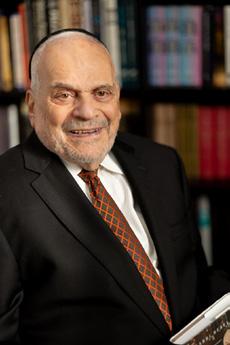

We invite all those who have been inspired by Rabbi Wein’ s life works to participate by donating to a whose net proceeds will be gifted to Rabbi Wein to further future educational projects. A scroll listing all the donations will be presented to those attending the dinner. Donations of $1,000 or more will entitle the donor to two dinner seats.


Entrance 25₪ | or Livestream
Speakers








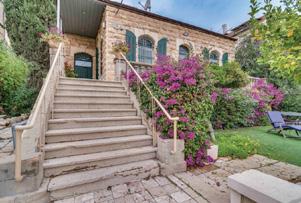

Amichai Chikli Minister of Diaspora Affairs To register: pulseofisrael.com/next-steps
Michael Rapaport Actor/Comedian
Len Khodorkovsky Former State Dept Iran Official Yalla Media Co-Founder
Caroline Glick Author & Journalist
Kenneth Abramowitz President & Founder of SaveTheWest.com
Avi Abelow Host /MC; Founder/ CEO, Pulse of Israel ...and more
Extraordinary Arab-style house, beautifully designed and renovated, 5.5 spacious rooms - ~200 Sq.m. on a 730 Sq.m. plot, Beautiful surrounding 500 Sq.m. garden , Great Potential: additional ~350 Sq.m. building rights, Large living room, dining area & bedrooms, Green, quiet & pastoral surroundings, One of the finest locations in Jerusalem: Near Emek Refaim cafes and shops, parks, cultural centers, the Jerusalem Theatre, hotels and more.
Nava Kornbluth Horowitz 053-4872545 Office 077-9968746 | www.anglo-saxon.co.il
3 Moshe Hess St., Jerusalem | 0778038511 Nava Kornbluth Horowitz: 053-6642512



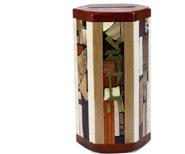








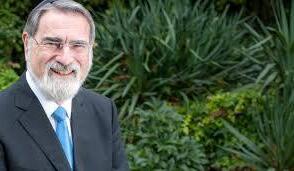
FORMER CHIEF RABBI OF THE UNITED HEBREW CONGREGATIONS OF THE COMMONWEALTH
May the learning of these Divrei Torah be תמשנ יוליעל HaRav Ya'akov Zvi ben David Arieh zt"l
In this week’s parsha, Moses has a breakdown. It is the lowest emotional ebb of his entire career as a leader. Listen to his words to God:
“Why have You treated Your servant so badly? Why have I found so little favour in Your sight that You lay all the burden of this people upon me? Was it I who conceived all this people? Was it I who gave birth to them all, that You should say to me, ‘Carry them in your lap, as a nursemaid carries a baby’? …I cannot bear all this people alone; the burden is too heavy for me. If this is how You treat me, kill me now, if I find any found favour in Your sight, and let me not see my own misery.” (Num. 11:11-15)
The cause of his distress seems utterly disproportionate to its effect. The people have done what they so often did before. They have complained. They say:
“We remember the fish we ate in Egypt at no cost, the cucumbers, and the melons, and the leeks, and the onions, and the garlic! But now our throats are dry. There is nothing at all but this manna to look at.” (Num. 11:5)
Many times Moses has faced this kind of complaint from the people before. There are several such instances in the book of Exodus, including one almost exactly similar:
“If only we had died by the Lord’s hand in Egypt! There we sat around pots of meat and ate our fill of bread. Instead you have brought us out into this desert to starve the entire assembly to death.” (Ex. 16:3)
On these earlier occasions Moses did not give expression to the kind of despair he speaks of here. Usually, when leaders face repeated challenges, they grow stronger each time. They learn how to respond, how to cope. They develop resilience, a thick skin. They formulate survival strategies. Why then does Moses seem to do the opposite, not only here but often throughout the book of Numbers?
In the chapters that follow, Moses seems to lack the unshakeable determination he had in Exodus. At times, as in the episode of the spies, he seems surprisingly passive, leaving it to others to fight the battle. At others, he seems to lose control and becomes angry, something a leader should not do. Something has changed, but what? Why the breakdown, the burnout, the despair?
A fascinating insight is provided by the innovative work of Prof. Ronald Heifetz,
co-founder and director of the Center for Public Leadership at the John F. Kennedy School of Government, Harvard University.1
Heifetz distinguishes between technical challenges and adaptive challenges. A technical challenge is one where you have a problem and someone else has the solution. You are ill, you go to the doctor, he diagnoses your condition and prescribes a pill. All you have to do is follow the instructions.
Adaptive challenges are different. They arise when we are part of the problem. You are ill, you go to the doctor, and he tells you: I can give you a pill, but the truth is that you are going to have to change your lifestyle. You are overweight, out of condition, you sleep too little and are exposed to too much stress. Pills won’t help you until you change the way you live.
Adaptive leadership is called for when the world is changing, circumstances are no longer what they were, and what once worked works no more. There is no quick fix for such things, no miracle pill, no simple following of instructions. We have to change. What’s more, the leader cannot do this for us. He must inspire, but we have to follow through. The fundamental difference between the books of Exodus and Numbers is that in Exodus, Moses is called on to exercise technical leadership. The Israelites are enslaved? God sends signs and wonders, ten plagues, and the Israelites go free. They need to escape from Pharaoh’s chariots? Moses lifts his staff and God divides the sea. They are hungry?
1. Ronald Heifetz, Leadership Without Easy Answers, Harvard University Press; Ronald Heifetz and Marty Linsky, Leadership on the Line, Harvard Business Press; Ronald Heifetz, Marty Linsky and Alexander Glashow, The Practice of Adaptive Leadership: Tools and Tactics for Changing Your Organization and the World, Harvard Business Press.


Jerusalem Real Estate is My Business Eta: 054-723-3863
Amazing stand alone homes in OLD KATAMON, TALBIYA, BAKA, GERMAN COLONY
Near BAKA. 234 net sqm on one floor, roof terrace, 126 sqm. 2 underground parking spots, Shabbat elevator & storage. For serious buyers
Private home for sale in the GERMAN COLONY. 500 sqm living space. New construction. Call for more info
In GERMAN COLONY. 300 sqm plus 170 sqm registered garden. Plus parking & roof top terrace.
In an historic and charming area of CITY CENTER, there are 2 apartments for sale in the same building. Each apt is the only apartment on the floor, 160 sqm each, 3.8 meter ceilings, completed with high level beautiful finishes. Both apartments have beautiful terraces with views of the city and private parking. Central AC system, radiators.
Price is 12,000,000 NIS for each apartment.
In BAKA, 236 sqm on two floors, plus 80 sqm of outdoor space, high ceilings, authentic Jerusalem bldg with modern addition. 4/5 bedrooms, office/ or sitting room. Master suite on entrance level. Parking & storage.







God sends manna from heaven. Thirsty? God sends water from a rock. When they have a problem, the leader, Moses, together with God, provides the solution. The people do not have to exert themselves at all.
In the book of Numbers, however, the equation has changed. The Israelites have completed the first part of their journey. They have left Egypt, reached Sinai, and made a covenant with God. Now they are on their way to the Promised Land. Moses’ role is now different. Instead of providing technical leadership, he has to provide adaptive leadership. He has to get the people to change, to exercise responsibility, to learn to do things for themselves while trusting in God, instead of relying on God to do things for them.
It is precisely because Moses understands this that he is so devastated when he sees that the people haven’t changed at all. They are still complaining about the food, almost exactly as they did before the revelation at Mount Sinai, before their covenant with God, before they themselves had built the Sanctuary, their first creative endeavour together.
He has to teach them to adapt, but he senses – rightly as it transpires – that they are simply unable to change their pattern of response, the result of years of slavery. They are passive, and overly dependent. They have lost the capacity for self-motivated action. As we eventually discover, it will take a new generation, born in freedom, to develop the strengths needed for self-governance, which is the precondition of freedom.
Adaptive leadership is intensely difficult. People resist change. They erect barriers against it. One is denial. A second is anger. A third is blame. That is why adaptive leadership is emotionally draining in the extreme. Many
of the great adaptive leaders – among them Lincoln, Gandhi, John F. and Robert Kennedy, Martin Luther King Jr, Anwar Sadat and Yitzhak Rabin – were assassinated. Their greatness was posthumous. Only in retrospect were they seen by their own people as heroes. At the time, they were seen by many as a threat to the status quo, to all that is comfortingly familiar.
Moses, with the insight of the greatest of the Prophets, intuitively sees all this. Hence his despair and his wish to die. It is far easier to be a technical leader than an adaptive one. It is easy to leave it to God, hard to realise that God is calling us to responsibility, to become His partners in the work of redemption.
Of course, the Torah does not leave it there. In Judaism, despair never has the last word. God comforts Moses, tells him to recruit seventy elders to share the burden of leadership with him, and gives him the strength to carry on. Adaptive leadership is, for Judaism, the highest form of leadership. That is what the Prophets did. Without relieving the people of their responsibility, they gave them a vision and a hope. They spoke difficult, challenging truths, and they did so with a passion that still has the power to inspire the better angels of our nature.
But with devastating honesty – never more so than in its account of Moses’ temporary breakdown – the Torah tells us that adaptive leadership is not easy, and that those who exercise it will face anger and criticism. They may come to feel that they have failed. But they have not. Moses remains the greatest leader the Jewish people has ever known, the man who almost single-handedly shaped the Israelites into a nation that never gave up or gave way to despair.
Nowhere is the difficulty of adaptive leadership more simply summarised than in God’s
words to Moses successor, Joshua.
Be strong and courageous, for you will lead these people to inherit the land I swore to their ancestors to give them. But you must be strong and very courageous indeed to faithfully uphold all the Torah that Moses My servant commanded you . . . (Joshua 1:6-7)
The first sentence speaks about military leadership. Joshua was to lead the people in their conquest of the land. The second verse speaks about spiritual leadership. Joshua was to ensure that he and the people kept faith with the covenant they had made with God. The first, says the verse, demands courage, but the second demands exceptional courage. Change always does.
These weekly teachings from Rabbi Sacks zt”l are part of his ‘Covenant & Conversation’ series on the weekly Torah teaching. With thanks to the Schimmel Family for their generous sponsorship, dedicated in loving memory of Harry (Chaim) Schimmel. Visit www.RabbiSacks.org for more.
To fight an enemy is hard, to fight with yourself harder still. To help people find the strength to change: that is the highest leadership challenge of all. Flying Soon?
1UniTravel - Medical Insurance at great prices Choose from multiple options 1unitravel.brokersnexus.com
1UniSim - Sims for USA and Worldwide Starting at $40 sales@1unisim.com



Rav Kehilla, Nofei HaShemesh
Rav Kehilla, Nofei HaShemesh
Maggid Shiur, Daf Yomi, OU.org
Maggid Shiur, Daf Yomi, OU.org
Senior Ra"M, Kerem B'Yavneh
Senior Ra"M, Kerem B'Yavneh
We all have a duty to erect a Mishkan in our hearts, as is stated םכָּותב
– We need to make room for God to dwell within our hearts and within our lives.
On the day the Mishkan was erected, the cloud covered the Mishkan, which was a tent for the Testimony, and at evening, there was over the Mishkan like an appearance of fire, [which remained] until morning. (Bamidbar 9:15).
In Parshat Beha’alotcha we are informed on the manner in which Bnei Yisrael traveled in the desert. When the cloud progressed so did the people and when the cloud stopped the people settled. The pasuk referenced above describes that when the Mishkan was erected it was covered by a cloud and at night it was engulfed by fire.
The Slonimer Rebbe in Netivot Shalom explains that the Torah is eternal. What is the significance of describing the way in which the nation traveled through the desert? There must be a meaningful deeper relevance for future generations.
The Slonimer Rebbe suggests as follows. The Torah does not use the phrase –
- the day Moshe erected the Mishkan, but rather in a more indirect manner- on the day the Mishkan was erected. This is to underscore that the directive of erecting a Mishkan applies to each individual.
Each day a Jew erects a Mishkan. Each individual establishes a place within which God can reside in their life. Yet, at times it is confusing and challenging. It is “cloudy”, foggy and uncertain. At night as with the Mishkan, we experience fire, which is symbolic of burning desires that seek to pull us away from the path of the Torah. We cannot always see clearly and understand why we are experiencing such challenges and hardships. These challenges are תונויסנ. The word ןויסנ (test) comes from the root סנ -which is a banner. After experiencing a ןויסנ – we can raise our banner. We come out stronger. Avraham experienced 10 תונויסנ and he withstood them all, and in fact it even strengthened his emunah and bitachon.
Life is full of challenges. Although we seek to get close to Hakadosh Baruch Hu, we experience road bumps on our journey. These detours, once overcome, serve to strengthen us. As with the Mishkan, once the cloud dissipated, the people were able to move forward. So too, after we overcome these challenges, we can move forward and progress and climb our spiritual ladder. These past few months have been very difficult and challenging times on both a personal and national level. As history has proven, our light shines even after the darkest and cloudiest of times. As with the generation
that traveled through the desert, we hope and pray that soon, the clouds we are experiencing will disperse, the uncertainty will cease, and we once again will have clarity and live as a united people in the flourishing Land of Israel. הנבא ןכָּשמ יבבלב – May the place we have established for Hashem in our hearts facilitate the manner in which we overcome these challenging times and help us on our journey throughout life.







Parashat Beha’alotecha opens with the command for Aharon Hakohen to light the Menorah (Bamidbar 8:2). Rashi (ibid) tells us that this is specifically juxtaposed with the last event in the previous parashah, the gifts given by the leaders of each tribe at the inauguration of the Mishkan.
Aharon felt bad that he nor his tribe was involved in this special service. Hashem, as it were, consoles him by giving him the distinctive appointment to light the holy candelabra in the Temple, telling him that his service is even greater than that of the tribal leaders. Ramban elaborates; the consolation was that his mitzvah is for eternity, hinting to the lighting of the Chanukah candles. In what way is this a greater service than the sacrifices that the princes offered? What is unique about this mitzvah, apart from the Chanukah story that has an eternal aspect connected to it?
Mazal Tov HONEY on your 100th Birthday
Ohel Moshe posits that what distressed Aharon was that he wanted to be part of the
Much love Marcelle
Mazal Tov to Jo & David Odes and family on the marriage of their son Gidon to Shira
Faculty, OU Israel Center
Faculty, OU Israel Center
inaugural service that brought the Shechinah down to this world. Thus, he was rewarded with the mitzvah of the Menorah which his descendants would dedicate in the future, effecting the catalyst for the restoration of the second Beis Hamikdash, the place where the Shechinah was rested.
Rav Ahron Kotler zt”l in Mishnat R’ Ahron notes that the Menorah is traditionally seen as the symbol of Torah study. Chazal teach, “one who wants to learn should ‘go south’” to learn Torah, invoking the direction of the Menorah in the Heichal. Torah is also famously compared to light, “ki ner mitzvah v’Torah ohr.” (Mishlei 6:23) Torah emanated from two distinct places in the Mikdash. The voice of Hashem came forth from between the Keruvim, representing the Torah coming ‘from Above.’ However, the light of the Menorah represents the human element in learning and disseminating Torah.
The Chanukah story is characterized by the ‘small cruse of oil that lasted for eight days,’ symbolizing a small group of people committed to Torah learning that was enough to keep the Jewish people connected. Aharon HaKohen is being promised that the Menorah’s service, the symbol of Torah study, will be eternally upheld. This is the great consolation, greater
Mazal Tov to Stefan & Rochelle Somogyi and family on the birth of 2 great grandsons
than the one-time service of the Princes.
The Tosher Rebbe zt”l offers a deeper analysis in Avodat Avodah. He quotes the teaching of Chovot Halevavot that mitzvot performed with actions can be rewarded in this world, and mitzvot of the heart, which are beyond the boundaries of this world, are rewarded in the next world. At the same time, even the mitzvot that we do perform physically must be infused with feeling and passion, thereby affecting reward in both this world and the next.
When Aharon lit the candles in the Mishkan he was essentially lighting the souls of the Jewish people to keep the Torah with passion and feeling. The Mishnah in Avot describes Aharon not as one who taught Torah,



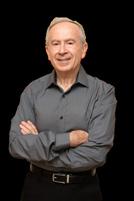


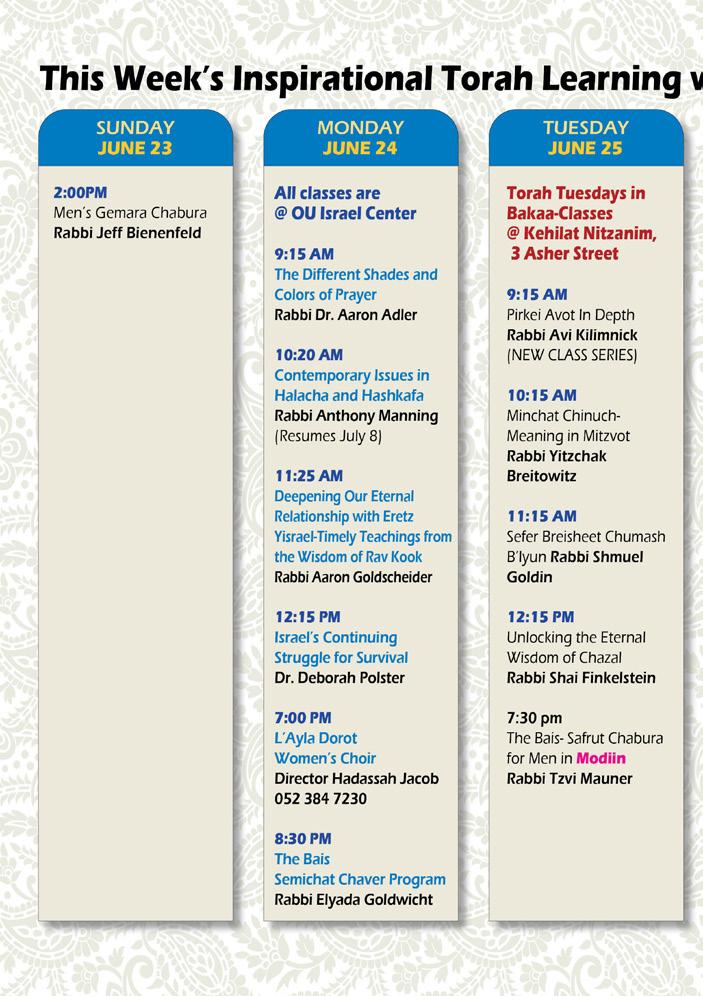
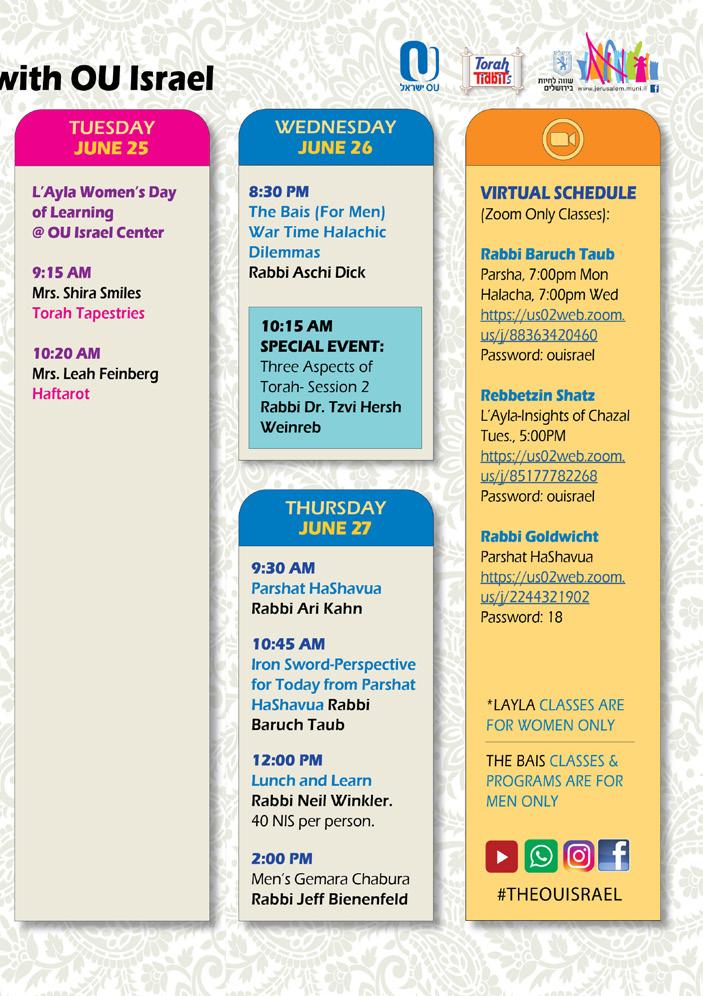


TO SPONSOR A SHIUR CONTACT
Chana Spivack - 050-229-4951 or donate online: https://www.ouisrael.org/donate/ou-israel-center/
TUESDAY, JUNE 4TH - MRS. LEAH FEINBERG’S SHIUR
was dedicated in honor of the miracle םשה made for my family 44 years ago when He saved my daughter from drowning
MONDAY, JUNE 17TH - RABBI ADLER’S SHIUR
was sponsored in memory of Fruma bat Meijer a”h - ה”ע ריאמ תב
on her 10th Yahrzeit - 9 Sivan
WED, JUNE 19, 26 & JULY 3 - RABBI DR. TZVI HERSH
WEINREB’S SERIES ON THREE ASPECTS OF TORAH
is sponsored by Estelle Harris in memory of her dear husband, Richard M. Harris z”l, Refael Meir ben Zvi Hirsch Halevi z”l on his 12th yahrzeit
RABBI SNOW’S SHIUR
is generously sponsored for this academic year by Scott & Linda Haniford
RABBI SHAI FINKELSTEIN'S SHIUR
Sponsored for this academic year by the Sondhelm and Wertenteil families in memory of Mel David z"l
RABBI ADLER’S SHIUR
Sponsored for this academic year by the Frist family in memory of their beloved daughter and sister Elisheva Frist a"h
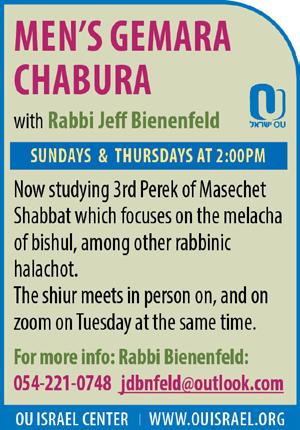
GET FIT WHILE YOU SIT:
Exercise for ladies Sundays 12:45-1:30pm at the OU Israel Center
Resumes Oct 15th 12:30-1:15pm
Sura Faecher 0504153239
Tzitzit tying at the OU Israel Center with Ruti - no experience needed Mondays at 1:30pm and Wednesdays at 12:00pm
Walking down King George St. in Jerusalem and want a cold bottle of water? Come help yourself to a bottle at 52 King George.
In loving memory of Yoni’s wife Tziporah a"h, a true Eishes Chayil, always full of chessed, kindness and laughter, and brought life and strength to so many people, that she touched! She was like Aron, who loved peace and pursued peace.

Yoni thanks Hashem for having the opportunity of having Tziporah in his life, to learn of her caring, patience and happiness, to overcome her challenges. May Tziporah's Neshama be a light onto the world, in a time of darkness, and may her Neshama shine to Gan Eden. Yoni misses Tziporah with tears in his eyes, as Hashem gave him a gift, a crown jewel, now he returns her to Hashem. With thanks and Toda. Love, Yoni
To help refill the supplysend tax deductible donations for Be’er Tziporah a"h Bottled Water Gemach to Chabad of RechaviaRabbi Yisroel Goldberg email Rabbi@JerusalemChabad.org 02 800-1717
www.JerusalermChabad.org/DonateShekels




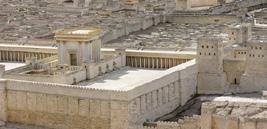


Executive Director, Camp HASC
Author of Baderech: Along the Path of Teshuva (Mosaica 2021)
Executive Director, Camp HASC
Author of Baderech: Along the Path of Teshuva (Mosaica 2021)
Rav Chaim Leib Epstein was the Rosh Yeshivah of Yeshivas Zichron Meilech in Boro Park for more than forty years. Having spent the war years in Shanghai with Yeshivas Mir, he later became one of the closest talmidim to Rav Aharon Kotler in Lakewood. Beloved as an adam gadol and brilliant talmid chacham, Rav Chaim Leib was a source of wise counsel and guidance for other Roshei Yeshivah as well as talmidim around the world. In many ways, he ‘kept the pulse’ on what was considered ‘Torahdik’ — in line with Jewish values in a changing world.
Some bochrim from the yeshivah were baderech, on their way to Boston for a friend’s wedding. When they hit unexpected traffic, they realized that they would probably not make it to the wedding in time for Minchah there, and were not sure what to do. Should they detour, stop off to catch a Minchah minyan on the way, and arrive late, maybe even missing the chuppah? Or should they make sure to arrive on time for the chuppah, and daven Minchah there b’yechidus, on their own? Which mitzvah should take precedence?
They called up Rav Chaim Leib, who thought for a moment and answered definitively: ‘You should go straight to the chasunah and be mesameach chassan v’kallah, bring joy to the bride
and groom, and daven Minchah b’yechidus, without a minyan. If you stop off now to daven, arrive late and miss the chuppah, it may put a damper on the chassan’s simchah. He may wonder if his chevreh is coming at all!’
One of the talmidim questioned their Rosh Yeshivah’s instructions: “But I haven’t missed a minyan since my bar mitzvah! I have never in my life missed an obligation to daven b’tzibur!”
Rav Chaim Leib’s voice became serious. “Ah, I see. Let me explain. Yiddishkeit is not about keeping a winning streak going or breaking a record… Yiddishkeit is about fulfilling the ratzon Hashem, doing what the Ribbono shel Olam wants you to do in this moment. Right now, your mitzvah is to be on time for your friend’s wedding!’
Speak to Aaron and say to him: “When you light up the lamps, let the seven lamps give light at the front of the lampstand.”
Aharon did so as Hashem commanded him. (Bamidbar, 8:3)
Rashi says the pasuk praises the consistent and yet passionate avodah of Aharon haKohein in the way he lit the Menorah —
“It extolls his virtue that he did not deviate from Hashem’s command.” Day in and day out, Aharon haKohen הנש אֹ ל “did not change”; his service was con- , stant. Students of the Baal Shem Tov point out
that while the structure of the preparation and performance of hadlakah remained the same, Aharon haKohen’s holy avodah was not scripted or done mechanically, by rote; it was suffused with newness and filled with chiyus, renewed vitality, each day. It would not be so noteworthy for someone just to do the same routine every day. Rather the praise הנש אֹ ל must mean that Aharon’s focus and freshness, intentionality and devotional intensity did not change.
Every day, every season and every stage of life is different, and necessarily so. The ‘avodah of Monday morning at the office’ is very different from the avodah of Shabbos Kodesh. Prayer in one’s teenage years ought to be different from prayer in one’s adulthood. To be alive means to be in a consistent state of change, growth and development. If we are drawing from the Source of Life, an eternal reservoir of intentionality and feeling, our spiritual perception and sensitivity will develop and change, flowing through the shifting currents of time and changing conditions.
Seeing ourselves as being baderech, in a lifelong state of process, enables us to be aware that our existence in olam ha-zeh is transitional. We are called upon to tether our choices and fulfillment of mitzvos to the Divine will — within the ever-changing present moment before us. The access point for our deepest connectivity must be reevaluated at any given time.
The deep kesher, partnership and working relationship between the co-Roshei Yeshivah of Har Etzion, Rav Yehudah Amital and Rav Ahron Lichtenstein, stands as a shining example of midos tovos and humility. It reveals
that two great men with distinct perspectives and strong opinions can share responsibilities and lead together in harmony. Even more remarkable is the fact that Rav Amital was a dynamic thinker, whose ideology, political opinions and perspective often shifted. As recounted in Rav Amital’s biography, By Faith Alone, his chaver, Rav Lichtenstein observed:
“That was part of his greatness. He was able to change his mind about matters close to his heart as realities shifted. From his perspective, this was not a concession of principles or a changing of his spots, but a way of maintaining principles. When reality changes, your practical attitudes must change along with it. Otherwise, you essentially turn your back on those principles, since principles must be implemented in the prevailing reality.”
One of the hespeidim for Rav Chaim Epstein, zt’l, described him as “a man who thought through each word, each action, each Torah and hashkafic point thoroughly and relentlessly, until his last holy breath left his body. He never ‘just did’ or ‘just said’ anything. Everything — everything — was thought out and calculated through the prism of emes and what Hashem would want.”
Consistency is admirable, and maintaining a regular, stable, daily practice anchors our spiritual lives. Just as significant is the flexibility and humility required to engage in constant reconsideration of what Hashem wants of me right now. May the flames of Aharon’s unwavering avodah ignite renewed passion in our own Divine service. And wherever we may be baderech, may our paths be illuminated by the clarity of knowing where, when and how the Ribbono shel Olam desires us to be.

In the last column, we looked at the question of IDF converts and whether they would be allowed to eat food that their non-Jewish parent(s) cooked for them when home on leave. We saw that some contemporary rabbanim have argued for leniency, citing exceptions in the writings of early authorities that allow for bishul akum done within a Jewish home and/ or by a non-Jewish maidservant. Although these rulings are generally not followed by most poskim, the argument is that in such a unique case one should be lenient, especially considering the sensitivity of the situation.
The prohibition
According to Biblical law, food that is completely kosher and cooked by a nonJew is permitted. However, our Sages decreed that such food, even when cooked in kosher utensils, is prohibited for consumption. This prohibition is known as bishul akum. In the coming weeks we will discuss the parameters of this rabbinic prohibition, including the reasons behind the decree, when it applies, and the practical halacha for modern industrial kashrut.
maintain that the decree is based on this issue of closeness to non-Jews that could lead to intermarriage; this is the opinion of most early authorities. However, Rashi and others attribute a different reasoning to the prohibition of bishul akum, which is that non-Jews might mix non-kosher ingredients into the kosher food. In future articles we will discuss whether the parameters of bishul akum are based on both of these reasons or just one. However, it is clear from numerous sources that the danger of intermarriage is the main reason behind the prohibition (See Torat Habayit 3:7).
Food is a very connecting element in every society. That is the basis behind the decree of bishul akum. Our Sages were very concerned about close relationships with non-Jews since intermarriage is a very severe transgression. The prohibition effectively limits Jews and gentiles dining with each other, although there is no specific prohibition against dining with a non-Jew per se. (See Rashi on Avodah Zara 31:b.)
Forbidding the non-Jew’s cooking would be enough to create an emotional distance such that families wouldn’t marry into each other.
Rabbeinu Tam (Tosfot Avodah Zara 38:a) and Rambam (Ma’achalot Asurot 17:9)
Later rabbanim, including the Rishon L’tzion Rav Yitzchak Yosef, completely reject this opinion and bring numerous proofs to negate the halachic arguments for leniency (see Klalei Hagiyur p.42-43). Regarding the claim that in a case where there is no real chance for intermarriage the decree of bishul akum is irrelevant, this position is disputed by almost all early authorities. In no halachic literature is there any differentiation between the identity or family connection of the nonJew cooking, whether it be a blood relative or a non-relative. In addition, there are poskim who rule that food cooked by a convert immediately prior to his conversion is prohibited for the convert himself (!) (See Imrei Baruch on
The decree is binding regardless of the reason
Since the transgression of intermarriage was the primary concern behind our Sages’ decree, their goal was to powerfully discourage the possibility of developing emotional connections to non-Jews that could lead to intermarriage either in that generation or the next. Accordingly, early authorities discuss whether the prohibition of bishul akum still applies even in situations where intermarriage is not technically possible. For example, Rashba, in his responsa (1:248), examines the case of food cooked by a priest. Being that Catholic priests do not marry nor do they have children with whom to intermarry, is it permitted to eat food cooked by a priest even though the reason for bishul akum seemingly does not apply to
responsa Nodah Beyehuda YD 64), even though there is absolutely no chance of intermarriage (with himself). The decrees of our Sages generally do not allow wiggle room or loopholes, and the same is true regarding bishul akum. Although one may argue that those who are lenient are merely using the precedent of cases where early authorities were lenient, such as a maidservant or in the home of a Jew, this logic can be easily refuted. It is clear from authorities that there is a core difference between the decree on the non-Jew as an individual and the factors surrounding bishul akum. As we will see in future articles, our Sages gave numerous cases where bishul akum does not apply, such as certain types of food and types of cooking methods. All those differentiations relate to the details of the cooking itself, but not to the identity of the non-Jew. As such, there is no similarity between leniencies offered by early authorities and differentiating between a non-Jewish relative and any other non-Jew. A further support to this position is written by Rema himself. He rules that on one hand, one may not eat kosher food cooked by a Catholic priest even though he has no children with whom to intermarry (YD 112:1); on the other hand, he is lenient regarding maidservants in certain situations (YD 113:4). This seems to be a blatant contradiction! Based on the
above, the answer is clear: our Sages were never lenient regarding the type of non-Jew to whom bishul akum applies. They were only lenient in certain details of the food or other external factors.
The OU Israel Gustave & Carol Jacobs Center for Kashrut Education was created to raise awareness and educate the public in all areas of kashrut. Rabbi Ezra Friedman, Deputy Rabbinic Administrator for OU Kosher Israel is the Center's director. him? Rashba answers that we have a rule regarding rabbinic decrees: even when the reason does not apply, the prohibition still stands. This is a necessary element in every rabbinic prohibition. Otherwise, Rashba explains, people could rationalize and find reasons why any decree should not apply in their particular situation. Accordingly, Rashba concludes that even food cooked by a Catholic priest has the prohibition of bishul akum. A similar ruling is made by Ramban (Avodah Zara 35:a) regarding non-Jewish royalty who, because of their stature, are prohibited from marrying Jews. He maintains that the fact that the non-Jews are royalty is irrelevant, and that the decree of bishul akum stands regardless of the reason behind it. Taz (YD 112:1) , Shach (YD 112:4) and Pri Megadim (YD 112:1) cite these rulings as axioms of the laws of bishul akum.
Other examples
The case of an IDF convert eating food cooked by his non-Jewish parents is quite sensitive, but the rabbinic consensus is to prohibit it. Although this might cause unintentional anguish at times, there are creative halachic ways to help ease the difficulty. One possible solution, as mentioned in a previous article, is to leave a large candle from which the convert’s mother can light a fire to cook food for her son or daughter. Another option is to wait for the convert to return home and then have him minimally participate in the cooking. Conversion is a true act of devotion for anyone, and entails many great challenges. Regardless of the halachic ruling discussed above, a convert (or someone in the process) should receive close guidance from a Rav on how to approach many of these difficult situations. This rabbinic involvement is essential in order for a convert to succeed in joining our holy nation. As religious Jews, we should embrace those who performed a true conversion process, and support them in all their needs.
Later authorities discuss similar cases where the logic behind bishul akum may not apply. Responsa Shevet Kehati (6:273) rules that even food cooked by a non-Jewish child is considered bishul akum, despite the fact that the chances of marriage seem remote. The same is true for food cooked in a faraway country where Jews cannot travel --

Our Sages prohibited food cooked by

The reason cited by most authorities is
Even in cases with virtually no risk of intermarriage, the food is still prohibited, including non-Jewish royalty, priests, young children, and non-Jews from distant


RASCO: new 4 room apartment, 95m, master suite, elevator, balcony, very nice view 2,950,000 NIS
ARNONA: 4-room apartment, 90m, beautifully renovated, master suite, balcony, storage, Shabbat elevator, private parking 3,250,000 NIS
BAKA: New 4 room apartment in a new building, 88m, master suite, storage, Shabbat elevator, private parking, 3,950,000 NIS
• Parsha Insights • Booklets • Counseling
Bentzion Kravitz • rabbikravitz@JewsforJudaism.org
RECHAVIA: 4-room apartment, 92m, Suka balcony, Shabbat elevator, fully accessible, private parking, storage 4,400,000 NIS
ARNONA: 5-room apartment, 120m, balcony, elevator, fully accessible, private parking, storage 4,350,000 NIS
For Sale: Great New Building
BAKA: 5-room garden apartment, 140m, master suite, private parking, storage, full of light, airy, nice garden, 5,000,000 NIS
Under construction in Talpiot. 2-5 rooms. Starting at 2.09m shekel.
For Rent in Katamon
OLD KATAMON: Spacious new 5-room penthouse, 155m, terrace, great panoramic view, underfloor heating, Shabat elevator, 2 parking, + rental unit, 8,900,000 NIS
30m studio on Bustani street, ground floor, small garden, for independent people over 55. 3500nis/month incl va'ad, hot water and heat. KNOW
FOR RENT: BAKA: nice 4-room apartment, 82m, beautifully renovated, master suite, air conditioners, balcony, 2nd floor, elevator - fully accessible, storage, 8,000 NIS

Our sedra this week, Parshat Beha’alotcha, includes the instruction to fashion the chatzotzrot- two silver trumpets that should be used to assemble together the entire nation as they are sounded. The chatzotzrot are to be sounded should we need to wage war, and for other occasions of significance that the entire nation must be alerted to and made aware of.
The verse tells us: U’vyom Simchatchem, U’vMoadechem, U’vroshei Chodsheichem, Utkatem bachatzotzrot.... On the day of your joy, and on your festivals and at the beginning of each month you shall sound the trumpets....
Our commentators are puzzled by the apparent redundancy in the opening of this verse- the days of our joy and our festivals and Rosh Chodesh. The Moadim, festivals, are generally associated to be days of simcha, there is an actual mitzvah of v’samachta b’chagecha- to rejoice on the festivals. So what is our verse referring to when it mentions u’vyom simchatchem- the day of your joy?
There is a beautiful midrash in the Sifrei which suggests that u’vyom simchatchem is referring to Shabbat- that even though there is no specific mitzvah to rejoice on Shabbat, one certainly should feel happiness on Shabbat.
The Netivot Shalom, the Slonimer Rebbe zy’a, further elaborates that u’vyom simchatchem is referring to Shabbat because Shabbat represents the proverbial wedding day between Hashem and Am Yisrael. The joy we inherently feel on Shabbat, represents this idea of Shabbat as a day when Am Yisrael
experiences and feels Hashem’s imminent presence, a day where we experience the joy of feeling close to HaKadosh Baruch Hu.
The Ibn Ezra offers a different take on our pasuk. The Ibn Ezra suggests that the words u’vyom simchatchem- represent an instruction to sound the chatzotzrot upon those joyous occasions when the Jewish people have merited to return to Eretz Yisrael from a foreign land, or whenever the Jewish people have experienced salvation through overcoming an oppressive enemy ruler and to establish days of joy to give thanks and recall this miraculous salvation as in the days of Purim.
Rav Shlomo Aviner, shlita in his Sefer Tal Chermon, points to this Ibn Ezra to make the case that there is an absolute obligation to establish such commemorations, to gather as a community to express our Hakarat HaTov and acknowledge that experience of salvation. Rav Aviner, points to this Ibn Ezra, as a precedent for the establishment of both Yom HaAtzmaut and Yom Yerushalayim, two modern day commemorations of communal salvation .
As we are all very much aware, these past many months have been filled with many traumatic days of sadness and pain. Yehi Ratzon, may we soon experience once again, as a nation, moments of great joy and happiness, and may we soon merit to sound both the silver trumpets and the Great Shofar as we greet Mashiach Tzidkaynu.
Dina Yehudit Bat Chana Chasya

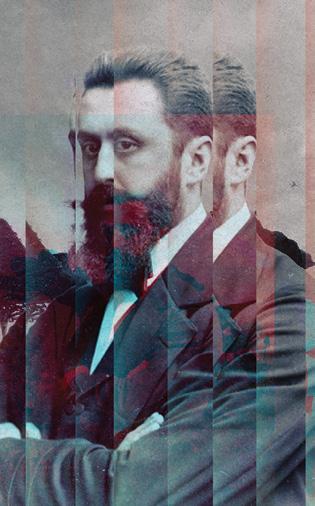
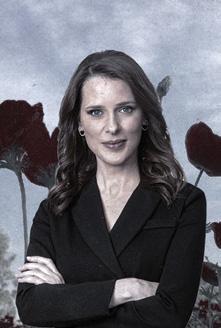

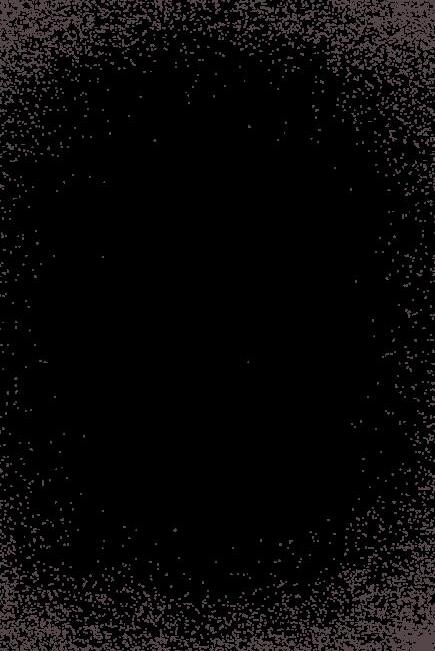

Words are powerful. They clothe our thoughts. The more precise our language, the more sharp our ideas. Inability to clearly articulate a concept reflects weak understanding. Rav Chaim Brisk (the grandfather of Rav Yosef Dov Halevi Soloveitchik and the innovator of the Brisker derech which has become the most popular manner of Talmudic analysis) commented “a chisaron in hasbarah is a chisaron in havanah” – inability to explain an idea is, in reality, a deficiency in understanding that idea. Verbal precision sharpens and deepens meaning.
Words can also alter history. Parshat Beha’alotecha portrays our nation as we were primed to enter Eretz Yisrael, launch Jewish monarchy, and usher in the kingdom of Hashem. Despite the appalling debacle of the egel, everything was now prepared for the advance of Jewish history. The mishkan was assembled and had been inaugurated. The Kohanim and Levi’im were selected and assigned their duties. The camp was divided into military formation. Everything seemed a “go”.
An iconic two-pasuk paragraph signals this historical readiness:
armies all return safely from their missions. In Parshat Beha’alotecha we stood at the doorstep of history.
Sadly, the process was derailed, this time not by a golden calf but by toxic speech. For no apparent reason, a group of discontents began to complain. What they complained about isn’t entirely clear, but their grouchiness poisoned the environment and demoralized our national spirit. Toxic speech is contagious, and soon afterward, Miriam and Aharon spoke slanderously about Moshe, destabilizing his authority. The original petty complaints about the desert diet of manna, led to the defamation of Moshe, which itself led to the horrendous crime of the meraglim spies. False accounts of unbeatable enemies in the Land of Israel exaggerated undue fears, which fostered cowardice and depleted faith. Tragically, our voyage to Israel was sunk by unhealthy speech. Complaints, slander, and derision of Israel all sabotaged Jewish history. Words are more powerful than physical weapons. Weapons can be subdued, but words carry lasting impact. Once spoken, they ripple with unintended consequences. OCTOBER 7TH AND THE
This couplet predicts our imminent and supernatural military victories, in which our
In the aftermath of the savage October 7th attack against our people words and phrases
were weaponized against us. Empty and hol low slogans are being vociferously barked, which is inciting hatred and violence. False accusations are being mindlessly hurled against us, and once these phrases stick, they are almost impossible to remove. Once the uneducated public is convinced that we are conducting an apartheid state our fate is sealed, despite our pluralistic culture and despite the widespread freedoms which our country extends to each of its citizens. Israel is an oasis of pluralism in a region of monolithic cultures which deny equal rights to its citizens. But facts don’t matter to the stupefied masses. They have already been indoctrinated by false catchphrases.
Once we are dishonestly labeled as colo nialists, we are labeled a white supremacist oppressor, despite the fact that Israel is, itself, an ex-colony which suffered under British rule. Once our moral war to defend against rapists and infant murderers is designated as genocide the world turns against us. In a postmodern world of vague truths and hollow slogans it is too easy to photoshop pictures, fabricate truths, and demonize our people.


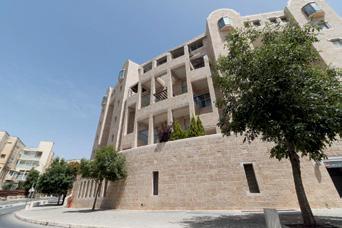
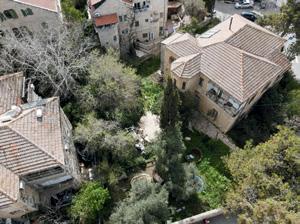
Yeshayahu (chapter 54) promised us that any and all verbal weapons hurled against us will fail
We have overcome past verbal barrages, and we will thwart these intellectually bankrupt and morally detestable attacks as well.
In addition, misrepresentative words are misleading the general population into believing that this is a battle between two different religions, each of which speaks in the name of G-d. In truth, we are battling atheists, not religious people. Radical Islam
describes a god who doesn’t exist. Hashem isn’t angry or capricious and He doesn’t cel ebrate the suffering of innocents. Hashem is compassionate and graces every human being with divine potential. Evil saddens Hashem and the removal of wicked people from His Earth is a divine tragedy: the potential Hashem endowed was wasted or perverted to immoral purposes. Radical Islamists are impostors, masquerading as religious people. Denying the ways of G-d is tantamount to denying His presence. They dress religiously and speak religiously, but do not believe in a G-d which, in any way, even remotely resembles Hashem. Referring to Islamic fundamentalists as religious people is a delusion. Choose your words carefully as they shape meaning and experience.
WE HAVE ALSO MISUSED WORDS
Our enemies have weaponized words and
have employed misleading terms to delude public opinion. However, we have also fallen into our own verbal traps.
I recently took a taxi ride in an overseas Jewish community with an Israeli who emigrated from Israel over twenty years ago. He informed me that we would soon arrive in the area of town with the highest concentration of Jews and Jewish institutions. He referred to this area as the Jewish “ghetto”. I halted him, imploring him not to use the word “ghetto” to describe a thriving and vibrant Jewish community. Ghettos were cramped enclosures where people lost their dignity, their health and, ultimately, their lives. Our people were starved to death, dehumanized and whisked away in cattle cars to be gassed to death like animals. Using the term “ghetto” to describe anything other than actual ghettos of suffering is not only inaccurate, but is also disrespectful to the memory of people who endured the nightmare of actual ghettos. The taxi driver agreed with me and vowed never to use the term again out of context. As Jewish history changes our language must adapt.
Likewise, it is a crime against Jewish history to refer to another Jew as an antisemite. We are a stubborn and argumentative people, and we take strong positions. Robustly defending our values, we engage in heated disputes. However, there is no position important enough to justify classifying another Jew as an antisemite. That odious term evokes centuries of hatred directed against our entire nation, as a nation. Statistically, it is highly probable that the ancestors of both the Jew accusing, and the Jew being accused of antisemitism jointly faced violent antisemitism. The ancestors of these Jews must be mortified, watching in Heaven as their children attack one another
with the very same verbal weapons which they jointly faced. It is historically myopic to refer to another Jew as an antisemite. Without basic sensitivity to Jewish history and to Jewish suffering, religious experience is flawed. A worse crime, and perhaps the worst crime against Jewish history is to refer to another Jew as “Hitler”. Over the past two millennia, we endured unrelenting waves of antisemitism. However, the Holocaust was different in many ways. Jews were murdered without being given any option to run or to convert. This wasn’t a local pogrom but a global attempt to eliminate anything and everything Jewish from our world. Referring to anyone as “Hitler” is disrespectful to the actual victims who suffered the greatest crime in history perpetrated by a hideous monster named Adolf Hitler. The resurrection of Nazi imagery and symbols by Hamas and their supporters underscores how abominable it is to call another Jew by that name. It is an unforgivable sin. Centuries of Jews will never forgive a person who degrades his own tongue and desecrates Jewish history by applying that name to another Jew. Jewish history is in constant flux and our vocabulary must react. The Holocaust changed our vocabulary.
So did October 7th. During a recent conversation, a colleague used the term “rape” in a metaphoric sense, referring to someone who stripped a text of its original meaning. Once again, I interjected, asking him to employ a different term. After the horrors which young women suffered on October 7th, it is disrespectful to use that phrase about anything else other than the horrific crime itself.
To my dismay, I have heard people use other October 7th related terms such as
“hijack” or “amputate” in non-literal fashion. These usages are insensitive and morally troubling. Words are powerful and they must be used carefully and precisely. Especially in the aftermath of horror, our language must be sensitive and self-aware.
Improper language derailed Jewish history. Violent language is wrecking our world and attacking our people. Careful and historically sensitive language will rebuild our world.
Synchronize language with Jewish history. It will change Jewish history. Redeem language and our people will be redeemed.
www.angelrealty.co.il
For Sale in Efrat
Dekel: * 340m Semi attached home, 11 rooms + rental unit. Great location 5,900,000 NIS
Dagan: * 6 room garden duplex. Huge 300m garden 3,600,000 NIS
Tamar: * Semi attached home - 8 rooms. 4.5 million
Zayit: * 4 room apt. (near Olive) 2,670,000 NIS
Neve Daniel: * 5 room garden duplex. 2,870,000 NIS
Rabbi Taragin’s new book about the war in Israel ‘Dark Clouds Above, Faith Below’ is now available in bookstores, or at: https://www.amazon.com/dp/ B0CZ7N8ZJB or: https://kodeshpress.com/product/ dark-clouds-above-faith-below/
For Sale in Ramot B 7 room, stunning semi attached home. Great gard en. 6.5 million
Gabi- 0524588716


Yishmael in Ma’arat Hamachpelah. Yitzchak is blessed by G-d: he lives in Beer L’chai Roi. The transition from Avraham to Yitzchak is complete. While G-d has been a silent partner in this parsha, here He completes the generational transfer – He blesses Yitzchak. The Jewish people will be Yitzchak and not Yishmael.
Not by might, nor by power, but by My spirit—said the L-RD of Hosts.
In this week’s Haftorah, the Navi Zecharya receives a vision of the golden Menorah of the Bais HaMikdash. The Menorah is described as having an elaborate design with a bowl of oil feeding into tubes that bring oil into its seven lamps. In addition to the bowls of oil, two olive trees provide the oil for the Menorah. Zecharya sees oil as miraculously flowing into the Menorah on its own.
The Alshich explains that the Menorah represents the Jewish nation which, although seemingly composed of disparate parts like the Menorah’s arms, is united at the base. Our diverse groups will ultimately unite under the direction of Moshiach. The menorah’s gold color alludes to the purity that the nation will attain in Messianic times. The seven branches


7th Aliya (25:12-18) The generations of Yishmael are enumerated. Yishmael dies. His descendants dwell from Egypt to Assyria. Yishmael’s story is brief. He has numerous and powerful offspring. The brevity echoes tions woman and began father’s that his icant the
of the Menorah represent our three forefathers and four foremothers who provide spiritual sustenance and uphold our people. But what does the spontaneous production of the oil symbolize? The angel responds that just as the oil was produced without human effort, Hashem will bring about the deliverance of our people when He wills it to be so.
When Avraham addresses the people of Cheit, trying to “Ger V’Toshav Anochi Eimachem” (23:4) “A Stranger and This seems to be a contradiction. If one is a stranger than is no longer a stranger. What did Avraham mean?
, not by might, nor by power, but by My spirit—said the L-RD of Hosts (Zecharia 4:6). When we commit ourselves to the pure mesorah as transmitted to us by our holy fathers and mothers, Hashem will provide the ultimate redemption, and we will proudly proclaim
The Magid of Dubno (Jacob ben Wolf Kranz 1741-1804) this tense situation in order to, both, state his truth and be said, on the one hand, “I am a Resident’ due to G-d’s promise need your agreement to purchase a plot. In other words, Avraham “strangers”, while they understood him as saying that “they” The peace was kept, and Avraham remained true to his Shabbat Shalom










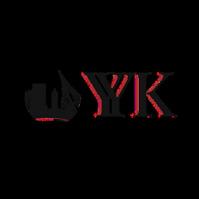




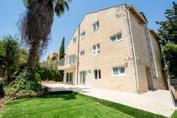

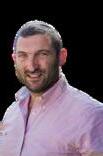










RABBI
RAV, THE JERUSALEM SHUL
BAKA, JERUSALEM
Moshe was our greatest leader. He spoke directly with God and worked open miracles, yet he remained exceedingly humble until the end. What, then, are we to make of his older sister Miriam speaking ill of him, and being punished with the special skin condition of tzara’at?
According to Rav Avraham Yitzchak Hakohen Kook, the explanation can be found in two models of spirituality.1 At the third meal of Shabbat Beha’alotecha in the summer of 1929, he taught the following. The Talmud relates that David ha-Melech desired a suitable place to build the Temple in Yerushalayim. He initially thought it should grace the tallest hilltop in the area, as it represents the peak of spiritual striving. Only the most spiritually pure would serve God there. He then decided that the Temple must be accessible to all, a place on earth where everyone can come as they are to worship God. Service of God should not be an exclusive club. He therefore chose a hill at a medium elevation, which represents equality and accessibility. Those serving God in it—the Kohanim—are not in a league of their own but help bring the holiness to others.2
Rav Kook suggested that this teaching opens a window into Miriam’s mind. Like David ha-Melech, she believed that God is
1. The following is based on Frankel, Shemu’ot Re’iyah, Beha’alotecha, 6:23–24.
2. See Zevachim 54b.
accessible to all, so we all have the same guidelines to follow in serving Him. That is why, according to Rashi, Miriam found fault with Moshe’s unrequired separation from his wife.3 She accused Moshe of assuming a stature of holiness that is unbecoming and contrary to the spirit of the law. But Moshe did not believe he was above the law, God forbid, but that additional ascetic rigor was required to maintain the more elevated state in which God could speak to him at any time.
As our guide to the Temple architecture, Rav Kook further pointed out that the mikvah used by the kohen gadol, the high priest, is located at its highest point: the roof. Strikingly, it was at exactly the same height as Yerushalayim’s highest summit.4 What does this symbolize? The mikvah stands for spiritual purity, so its situation at the tallest point to which the kohen gadol would ascend indicates that there exist individuals of exceptional spiritual fortitude who are able to attain a degree of spiritual clarity superior to that of the broader community. In order to do so, they often impose on themselves more stringent restrictions and adopt supererogatory practices.
Moshe was the exemplar of this spiritualized being, which explains why he separated from his wife. One of the Rambam’s Thirteen
3. Rashi on Numbers 12:1, s.v. ןרהאו םירמ רבדתו, citing Sifrei, §99.
4. Yoma 31a–b.
Principles of Faith is that Moshe was superior to all prophets who came before and after him. It was this that Miriam failed to recognize when she judged him as being needlessly ascetic. God Himself disabused her of this notion: “With him do I speak mouth to mouth; in a vision and not in riddles, and he beholds the image of the Lord” (Numbers 12:8). The prophecy of other prophets, Miriam and Aharon included, did not hold a candle to Moshe’s.
Rabbi Goldscheider is the author of the newly published book ‘Torah United’ (OU Press), featuring divrei Torah on the weekly parasha from Rav Kook,
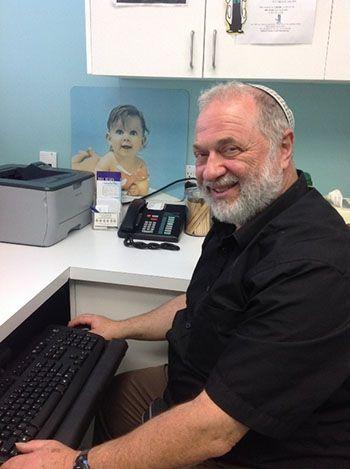
Canadian Physician - over 10,000 britot! From Toronto, Canada, now residing in Bet Shemesh
Certified Mohel on the list of the Chief Rabbinate of Israel


Question: I have started a year of aveilut and hope to recite many Kaddeishim. I was wondering: after taking three steps back and finishing Kaddish, must I wait before returning to my place?
Answer: It is indeed worthwhile for people with hundreds of Kaddeishim in front of them to learn more about different facets of Kaddish, but we will actually start with Shemoneh Esrei.
The gemara (Yoma 53b) says that the correct way to show respect to Hashem before Whom one was praying is to take three steps back at the end of Shemoneh Esrei, give Shalom while turning to the sides, and not return to one’s place right away. While it is unclear what text was used in the gemara’s time to “give Shalom,” by the time of the Rishonim
 RAV DANIEL MANN
RAV DANIEL MANN
(see Mordechai, Berachot 111), it was clear that we employ some version of “Oseh shalom bimromav hu …” This is a request that Hashem bring peace to Israel as He brings peace between the different components of His heavenly abode. (The opening words come from the description of Hashem in Iyov 25:2).
We recite Oseh shalom bimromav … at or near the end of three important texts we recite: Shemoneh Esrei, Kaddish, and Birkat Hamazon. Peace is such an important value that we want to acknowledge Hashem’s part in it and request more of it at the end of these “interactions” with Him (see Tzitz Eliezer XIV:14). This is done at Shemoneh Esrei after taking three steps back. At Birkat Hamazon, we do not take any steps at any point, including when saying Oseh shalom bimromav. There is a major machloket among poskim and in Sephardi practice whether we take steps back after all Kaddeishim that end with Oseh shalom bimromav or only in Kaddish Titkabel (see opinions in Yabia Omer V, Orach Chayim 9).
The reason that Kaddish Titkabel may be different is that this Kaddish has a special kinship to Shemoneh Esrei. First, in content, the line that is unique to this Kaddish is the request that Hashem accept our prayers, and this usually refers to the Shemoneh Esrei and/ or chazarat hashatz that the tzibbur recently recited. The connection finds expression in various halachot. For one, if Shemoneh Esrei/ chazarat hashatz began with a minyan that later dissipated, since they can finish up the units they began, they can recite the
Eretz Hemdah, the Institute for Advanced Jewish Studies, Jerusalem, is headed by Rav Yosef Carmel and Rav Moshe Ehrenreich, founded by Rav Shaul Yisraeli, zt”l, to prepare rabbanim and dayanim to serve the National Religious community in the Israel and abroad. Ask the Rabbi is a joint venture of the OU, Eretz Hemdah, and OU Israel’s Torah Tidbits.

Kaddish Titkabel because it is the conclusion of chazarat hashatz (Rama, OC 55:3). Also, the Shulchan Aruch (OC 123:5, based on Terumat Hadeshen I:13) rules that a chazan does not need to take three steps back at the end of chazarat hashatz, because the steps at the end of Kaddish Titkabel count as the steps after chazarat hashatz (see Mishna Berura 123:18).
Now to your question. Rav Chaim Naeh (Sh’not Chaim 9:(47)) says that since Kaddish Titkabel is connected to chazarat hashatz, one should wait the amount of time it takes to walk four amot (2-3 seconds) before returning to his place (based on the model of the Rama, OC 123:2). Since there is apparently no one who explicitly disagrees, it is not surprising that contemporary sources, such as Ishei Yisrael (24:(152)) and Dirshu (124:21), cite and seem to accept him. However, he limits this requirement to Kaddish Titkabel (as opposed to Kaddish Yatom and D’Rabbanan, despite ending with Oseh shalom bimromav and even for those who take steps back). He also excludes Kaddish Titkabel of Ma’ariv (Mekor Chayim (Bachrach) to Rama, OC 123:2) disagrees) apparently because there is no chazarat hashatz to connect to and everyone took steps back after Shemoneh Esrei.
My strong impression is that few chazanim think about how long to wait before moving forward. (Kaddish reciters who are not chazanim may not even return to the place they started Kaddish). Possibly, many naturally wait close to the “required” time, but we still contend that the minhag is not to wait after


ARNONA: 4-room apartment, 93m, master suite, balcony, storage, elevator, private parking, 3,350,000 NIS
RASCO: new 4 room apartment, 95m, master suite, elevator, balcony, very nice view 2,950,000 NIS
ARNONA: 4-room apartment, 90m, beautifully renovated, master suite, balcony, storage, Shabbat elevator, private parking 3,250,000 NIS
BAKA: New 4 room apartment in a new building, 98m, master suite, storage, Shabbat elevator, private parking, Sukkah balcony in process of being added, 4,250,000 NIS
BAKA: New 4 room apartment in a new building, 88m, master suite, storage, Shabbat elevator, private parking, 3,950,000 NIS
REHAVIA: New garden apartment, 98m, garden 50m, master suite, Mamad, full accessibility, private parking, 5,390,000 NIS
RECHAVIA: 4-room apartment, 92m, Suka balcony, Shabbat elevator, fully accessible, private parking, storage 4,400,000 NIS
ARNONA: 5-room apartment, 120m, balcony, elevator, fully accessible, private parking, storage 4,350,000 NIS
SHAAREI CHESED (RECHAVIA): 4-room apartment, 123m, balcony, extraordinary view, Shabbat elevator, fully accessible, private parking, 5,590,000 NIS
BAKA: 5-room garden apartment, 140m, master suite private parking, storage, full of light, nice garden, 6,000,000 NIS
OLD KATAMON: Spacious new 5-room apartment, 140m, terrace, underfloor heating, Shabbat elevator, 2 parking, 6,300,000 NIS
NORTH TALPIOT (CASPI STREET): New garden apartment, 5.5 rooms, 165m, 80m yard, architecturally renovated, master suite, Mamad, underfloor heating, central air conditioning, parking, 5,890,000 NIS
FOR RENT:BAKA: nice 4-room apartment, 82m, beautifully renovated, master suite, air conditioners, balcony, second floor, elevator - fully accessible, storage, 8,000 NIS
KIRYAT SHMUEL: New penthouse, 230m, master suite, Mamad, full accessibility, private parking, 13,290,000 NIS
any Kaddish. On the other hand, if you want to be machmir, this is not a problem, because presumably the tefilla would not be delayed by it. (We would not find it appropriate to follow the opinion (cited in Ishei Yisrael ibid.) that a Kaddish sayer should not say the ending Barchu until returning).

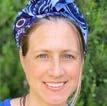 Michal Silverstein, MS
Michal Silverstein, MS
Dear T.R.
Thank you for asking this very relevant and timely question.
Adults as well as children are overwhelmed with emotions when they hear about a terrorist attack. When they become more frequent, the feeling of uncertainty and loss of control can create much anxiety. There are certain guidelines to keep in mind
My 12 year old daughter is showing signs of fear and anxiety that’s been triggered by the ongoing war. She’s afraid to be in her room alone, especially at night. What’s the best way to handle this?
For Sale:
the questions they ask. Stay focused. necessary to elaborate or get sidetracked politics or other similar situations. tions should be given in an age appropriate manner. Just like your rules are age priate your discussions should be Having more detailed, graphic conversations is more appropriate with an 18 than old.
things straight forward and in the here and now. Don’t get caught up in “what ifs” or possible eventualities.

25 Ben Maimon, 4 rooms, 113m, 2 bathrooms, porch, 1st floor, elevator, 6.2 million NIS
Smadar 050-3114040 // 02-642-4329
smadi_bida@walla.co.il
70 TORAH TIDBITS 1514 / EMOR
Children of all ages are preoccupied with thoughts of the war, soldiers, displaced families, and hostages who are still unaccounted for. There are a lot of elements in this war and kids have a lot of questions. Most important is to reassure your child that she can ask you any questions. When children are given information by people they trust their anxiety tends to subside. Although we can’t reassure our children that everything is ok, we can reassure them that we are with them and supporting them throughout this stressful , uncertain time.
Kids these days are exposed to a lot of information as well as misinformation from their surroundings, the internet and friends. It’s very important to limit your child’s exposure to the internet and social media. A lot of content out there is inappropriate for children. Even if you limit internet access and have a filter, kids will still be exposed to unwanted information from their friends. So try to take the opportunity to have a calm conversation with your child and give them the facts without getting too deep into details. Try to keep
Try to be physically and emotionally present. Kids who are feeling anxious may need more time with you, more attention and care. At night they may ask to put on a nightlight, sit with them for a little while or close the trissim. This is all normal for this time period. Some kids may be preoccupied with the safety of soldiers while others with the hostages. They may picture themselves in similar situations which lead to fear and anxiety. You want them to be able to discuss it with you as much as they need to and validate their fears. You can even say that there are adults who are concerned and anxious at times.
It’s important to keep an eye out emotional and physical signs of If your child looks sad, has crying becomes fearful or angry or is experienc ing changes in sleeping and eating he may need extra help processing rent state of events. Be aware of behavioral changes.
Regarding your own emotional important to model emotions in front children. Seeing you express your will allow your child to do the same. being said, there is also a limit. You
If they come across inappropriate content and they want to share with you, don’t berate them. They’re probably disturbed enough by what they’ve seen or heard. Once you have validated your child’s anxious feelings and behaviors you can teach them some coping techniques which will fortify them and enable resilience.
Reassure your child that your job is to keep her safe and you will continue to do so. Discuss times that as a family or as a nation, you have faced challenges and have prevailed, for example during carona and the many lockdowns. Get active! Think of a way to help. When a person (child or adult) gives to
someone else who is in a more dire situation, then it gives one perspective and a sense of purpose and control. This can be in the form of chessed, making cards, food, delivering goods, or being part of a learning or tehillim group. You can even encourage your child to initiate a project. Since this war is a prolonged situation, we want to fortify our children as much as possible. If your child’s symptoms are getting progressively worse you should reach out for professional help.
Be’hatzlacha
Feel free to send in any parenting questions you may have to parenting@ouisrael.org (Details will be changed to preserve anonymity).
Michal Silverstein has a MS in educational psychology and counseling. She facilitates parenting workshops in and around Jerusalem and maintains a private practice.
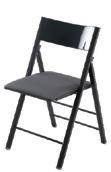























JUNE 26 TH !




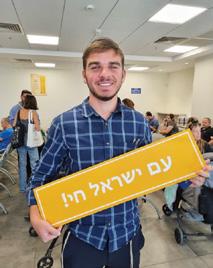

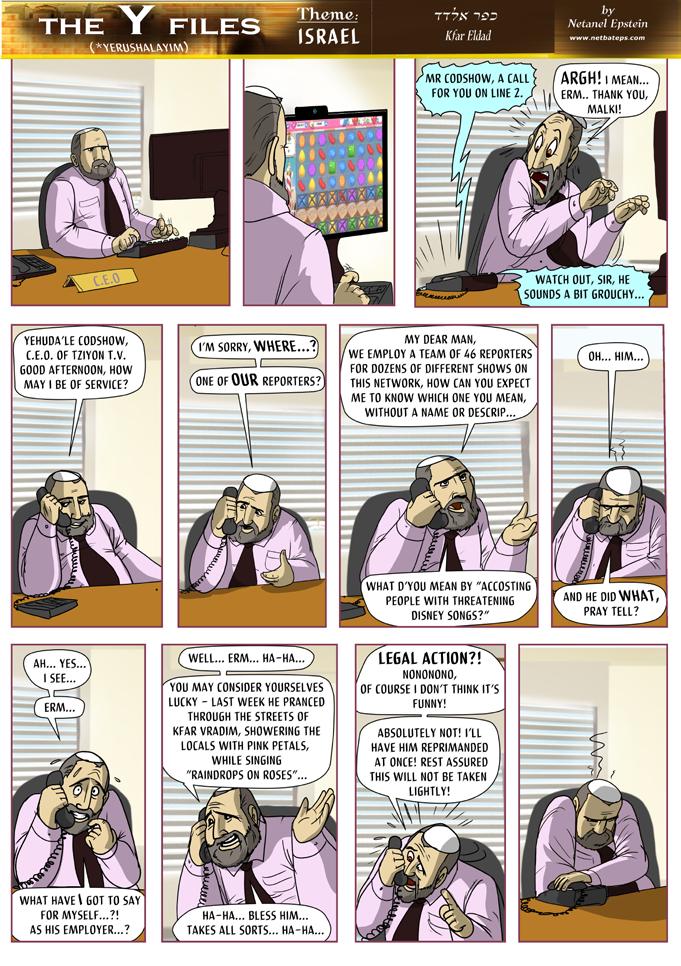



This week’s parsha features something peculiar: two nuns. Well, what’s odd about a couple of nuns? The Torah has hundreds of them?! Well, these ones are backwards. Yeah, that’s pretty odd.
Chazal teach that these two nuns don’t just bookend an episode in the Chumash; they actually bookend an entire Sefer, that spans two Pesukim. Two pesukim?! An entire Sefer?! Time to grab some snacks and make a siyum! Well, hold your horses. Not so fast. The Chida shares that this Sefer isn’t fully written yet. יהיו ןורא עוסנב refers to all the “travels” of the Jewish people, throughout history and throughout exile. It is during the time of Geulah, when ”ךָיביוא וצופיו“ is fulfilled, that the full Sefer will be revealed, detailing the stories of the Jewish people, including our own.
Our lives and actions are part of an ongoing narrative. Each of us contributes a chapter to the grand story of the Jewish people. As we move through our own personal journeys, we must ask ourselves, “What will our chapter look like?”


In Parashat Behaalotcha, the cloud guiding the Jews through the desert wasn’t just a marker, but a symbol of God’s divine guidance. Their trust in Hashem was evident as they followed the cloud through the desert into the unknown. Just like their faith, we too should trust that He will guide us through challenges and lead us to the destination we are meant to be. The cloud symbolizes not only God’s protection and guidance but also his constant presence with every one of us. Even when we can’t see him, he is always with us. While the cloud served as a physical sign back then, we learn that God’s presence remains with each of us even now.
Shabbat Shalom
To NCSY Israel Executive Director and his wife Rav Michael and Elana Kahn on the birth of a B a b y G i r l !






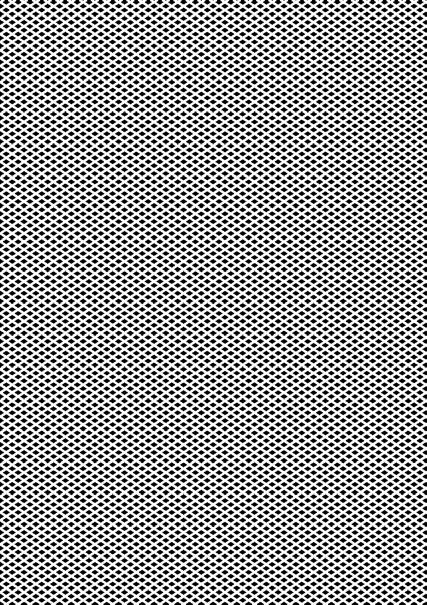
7,900,000


